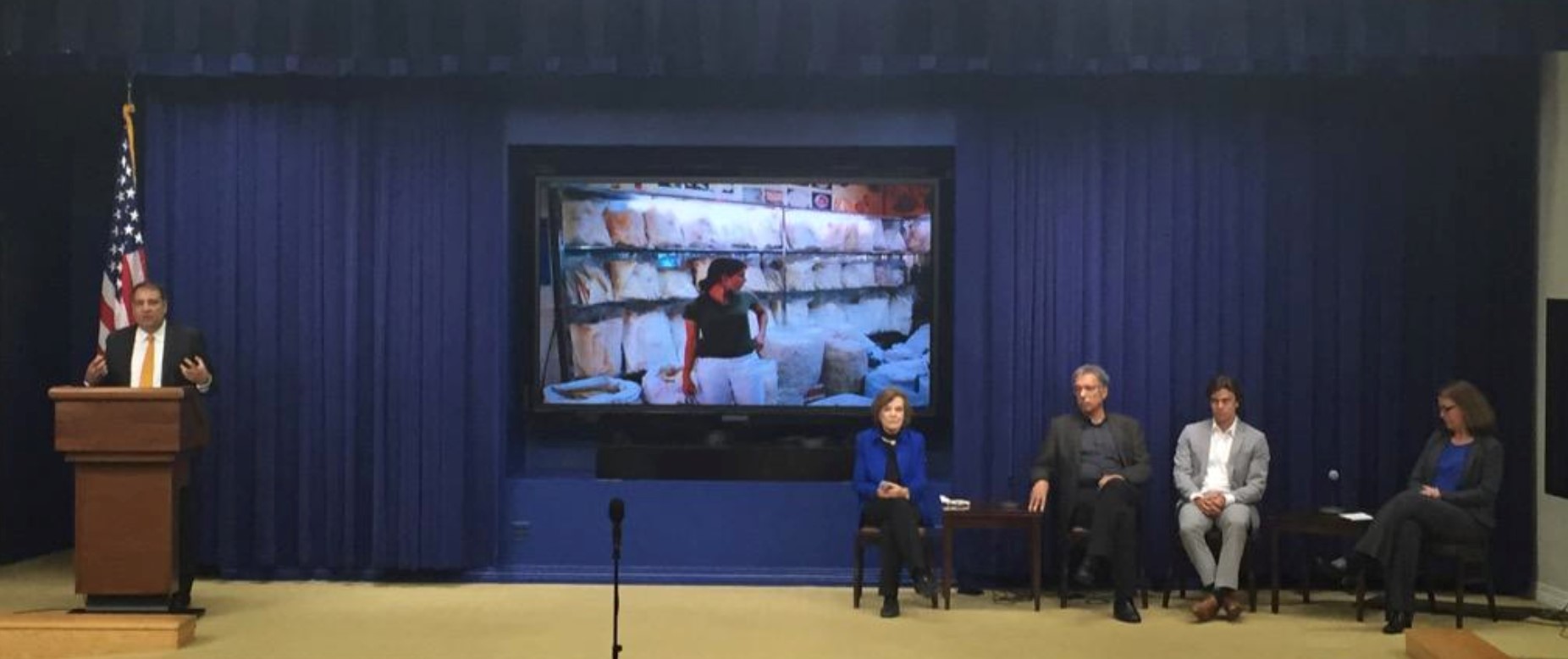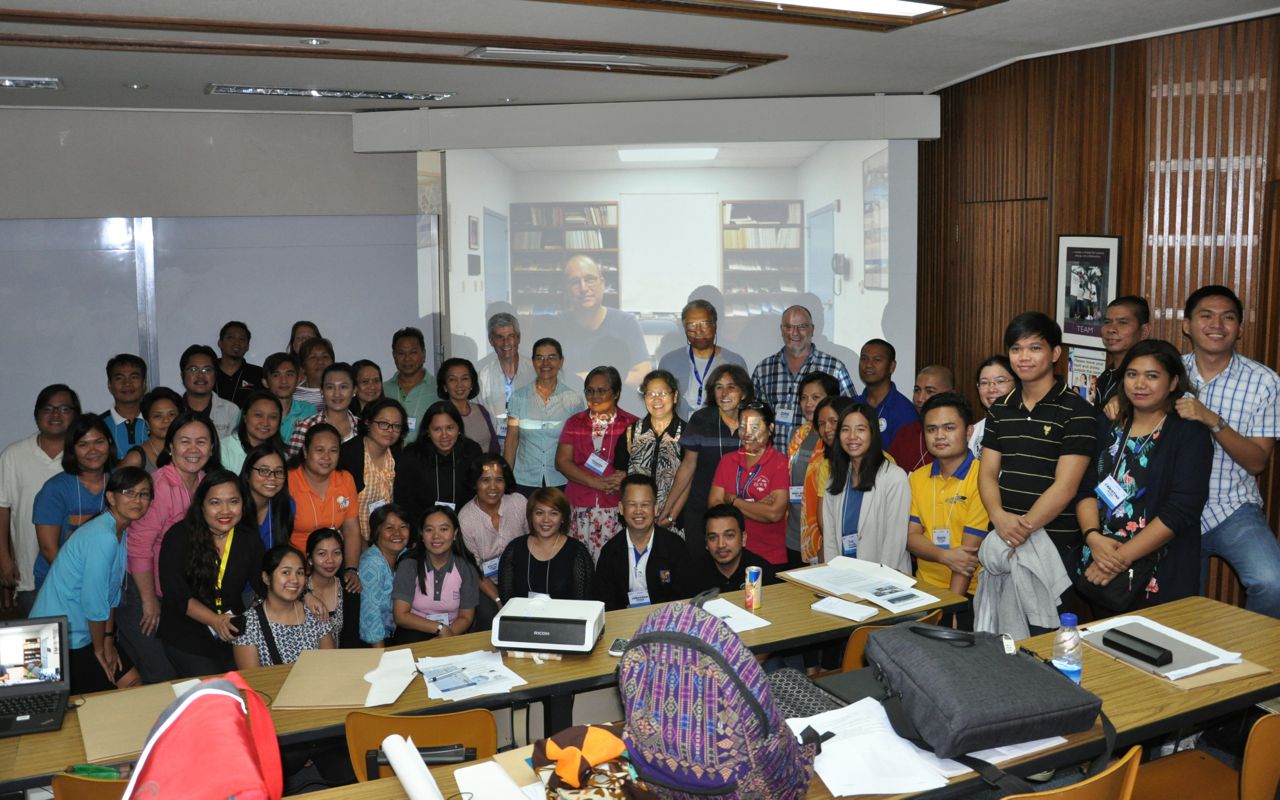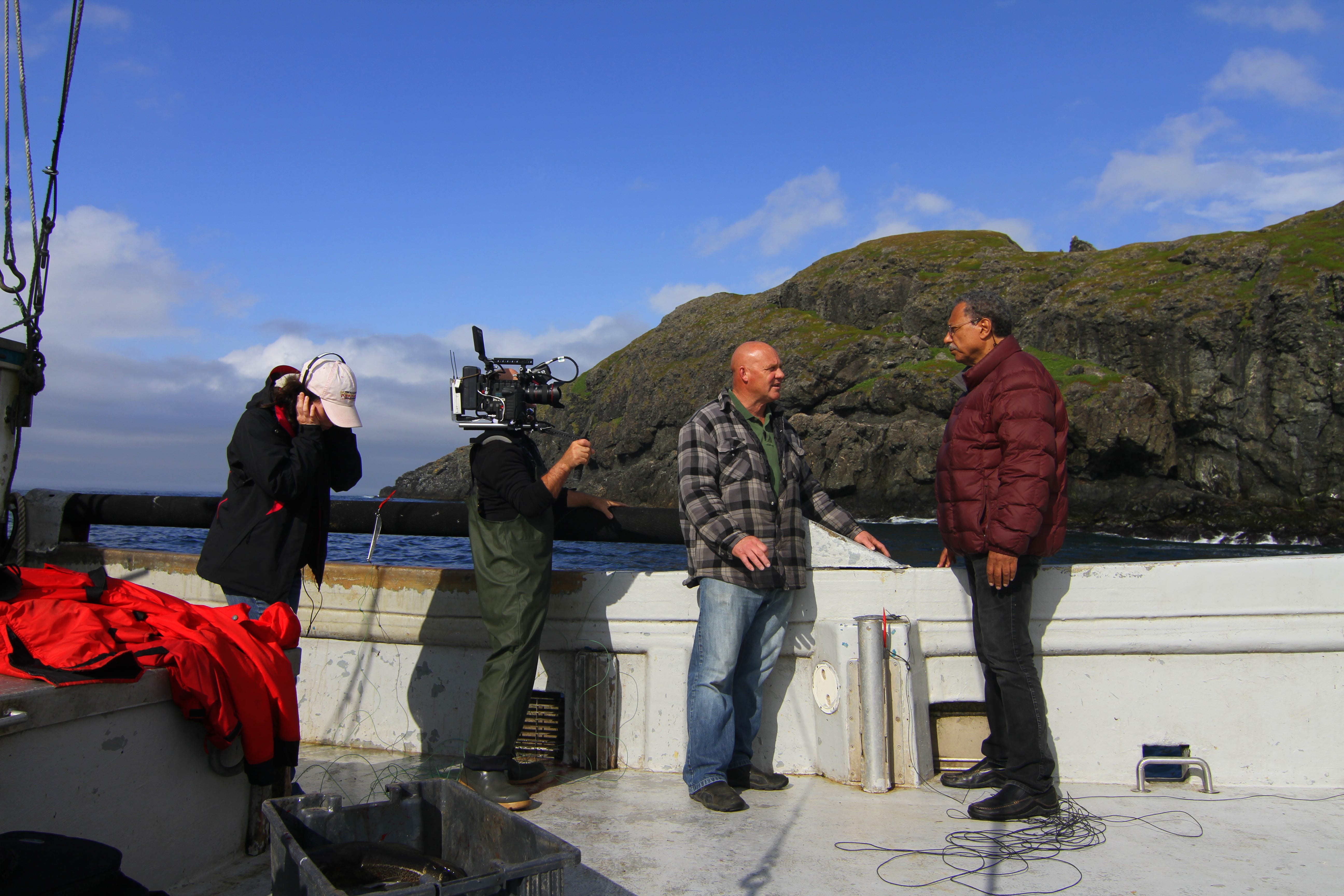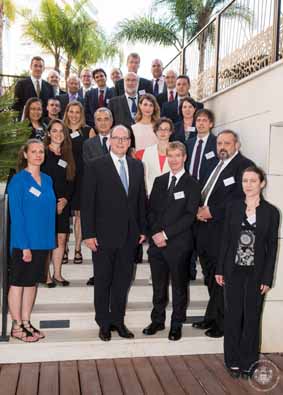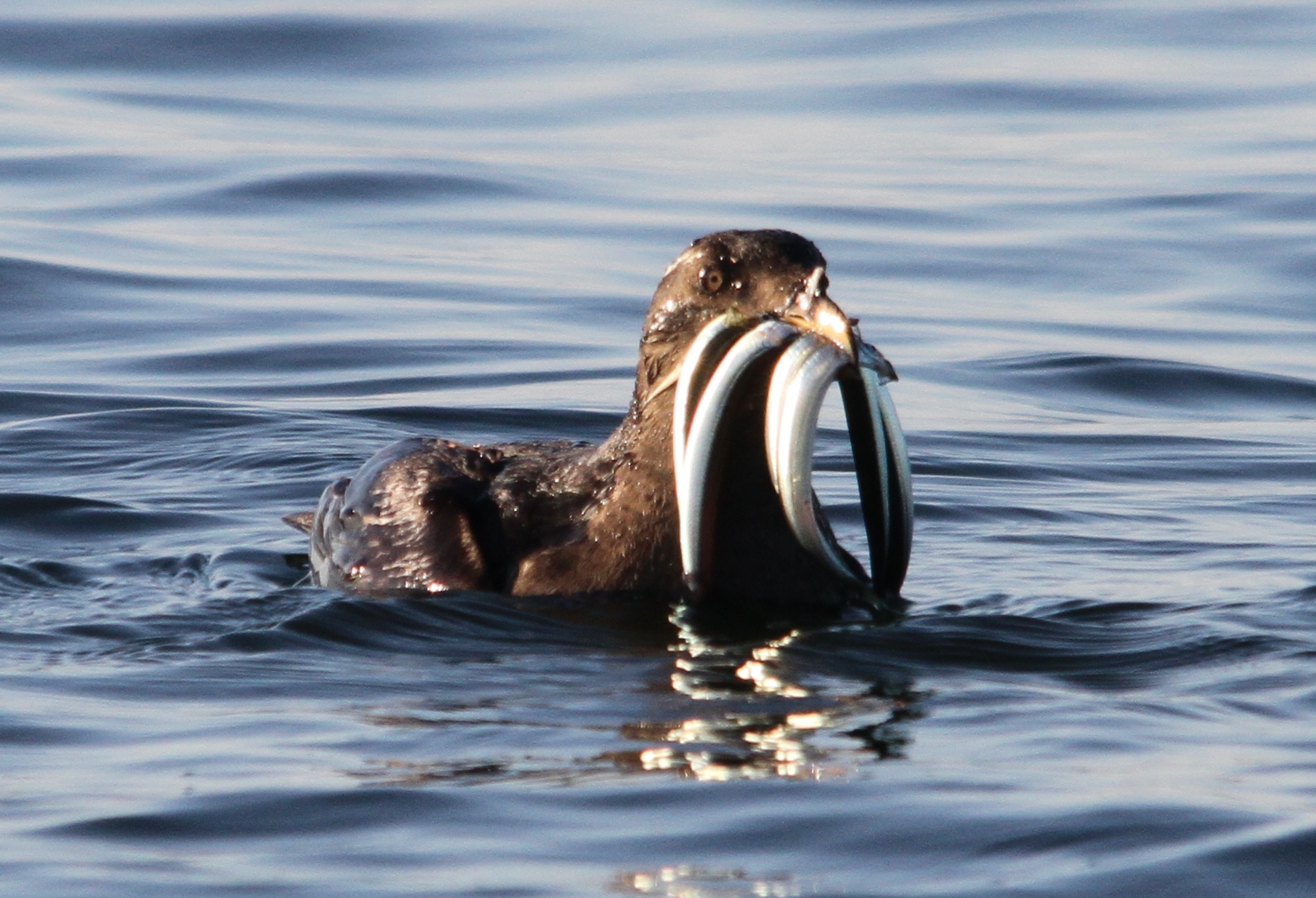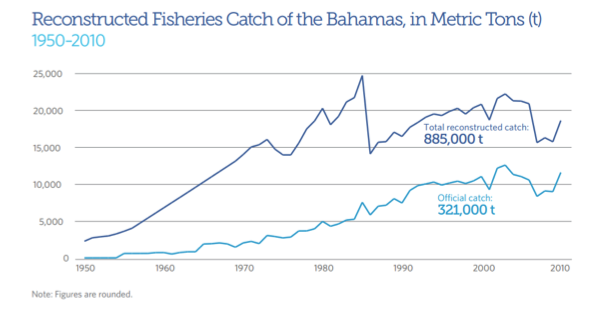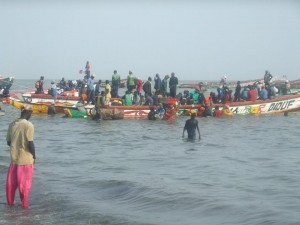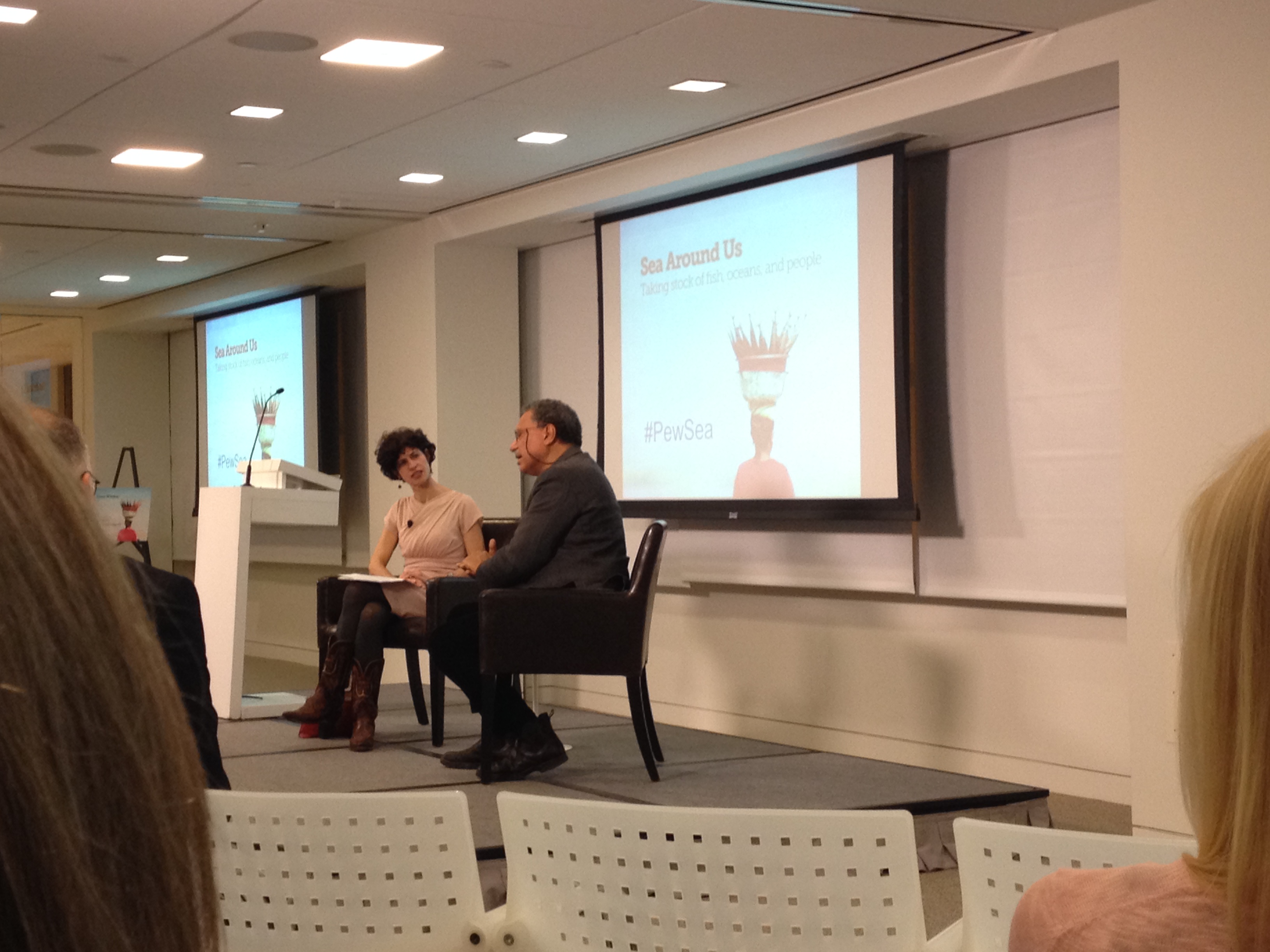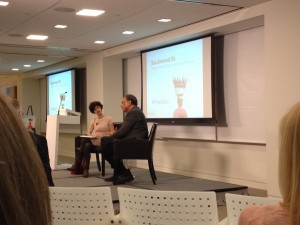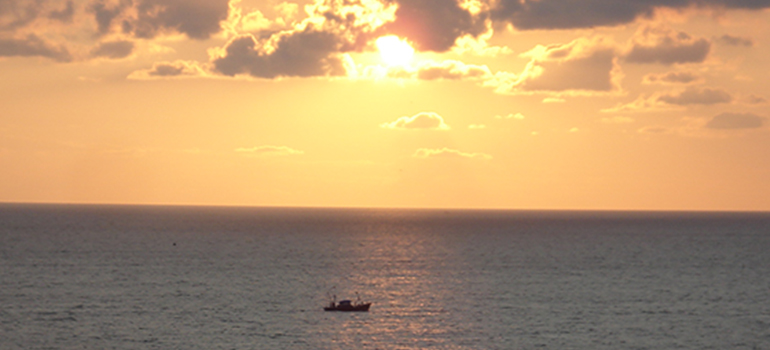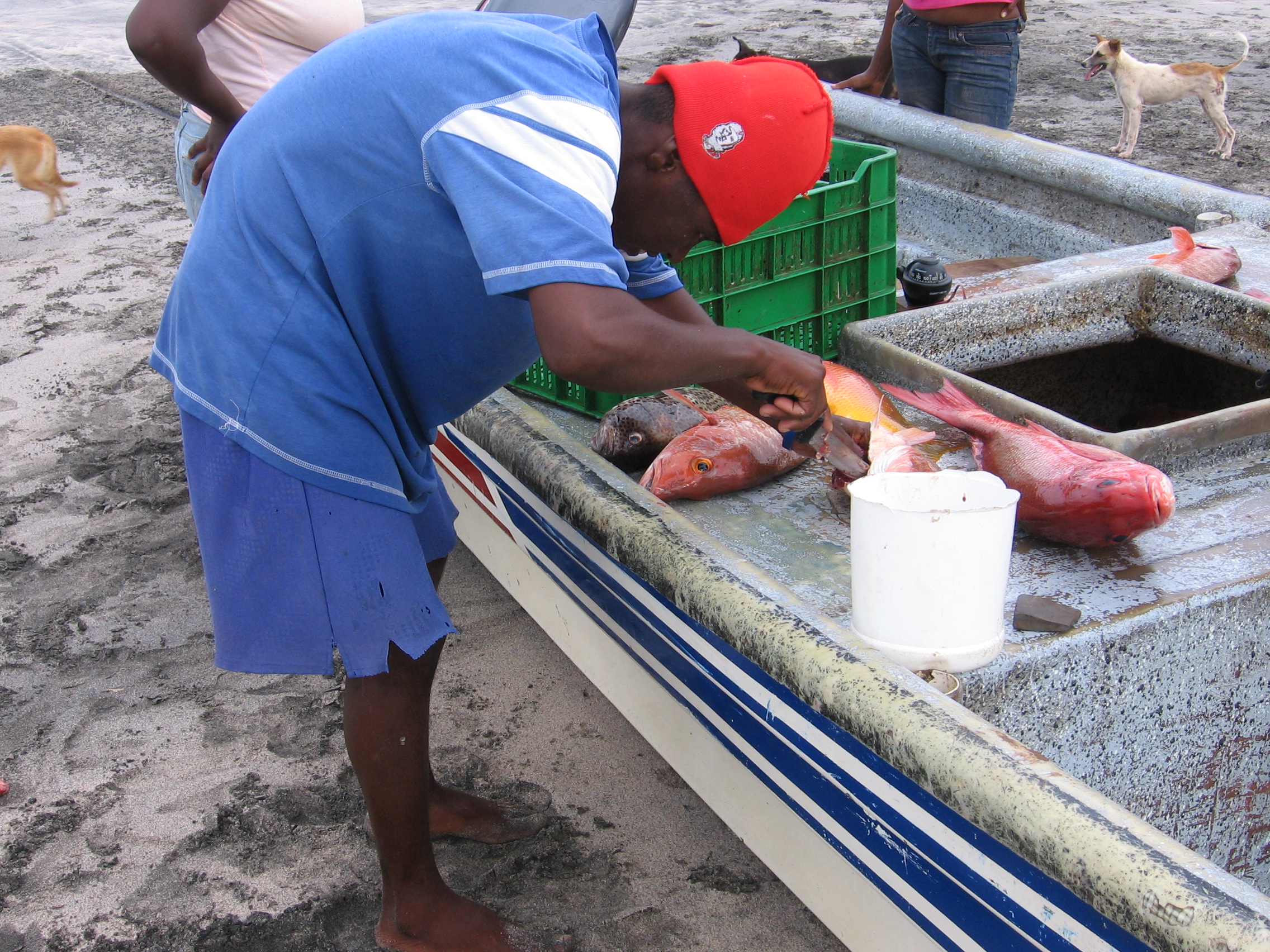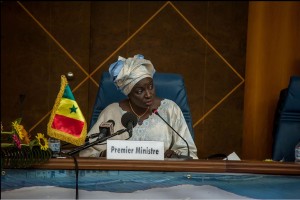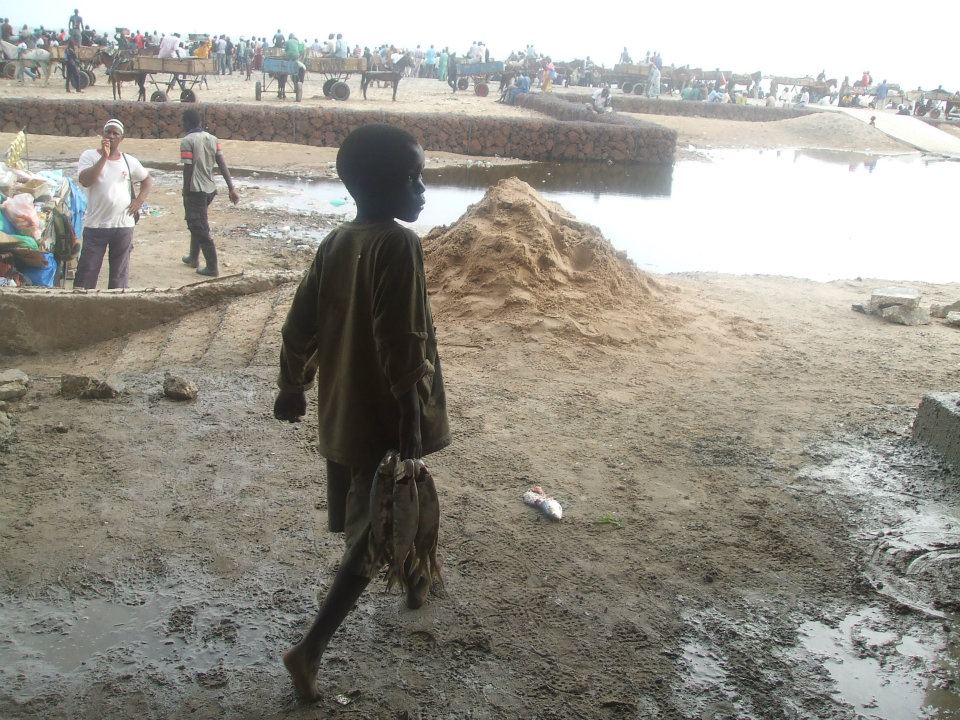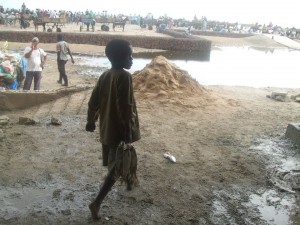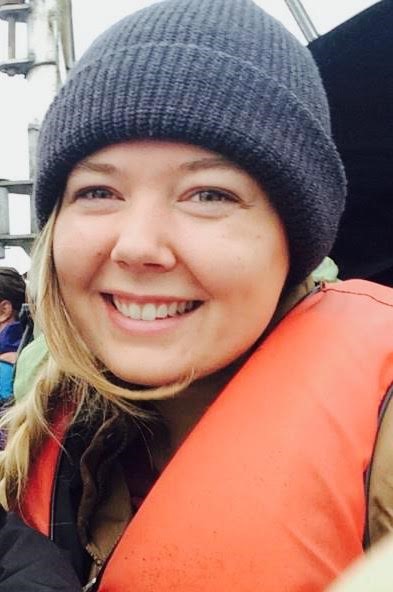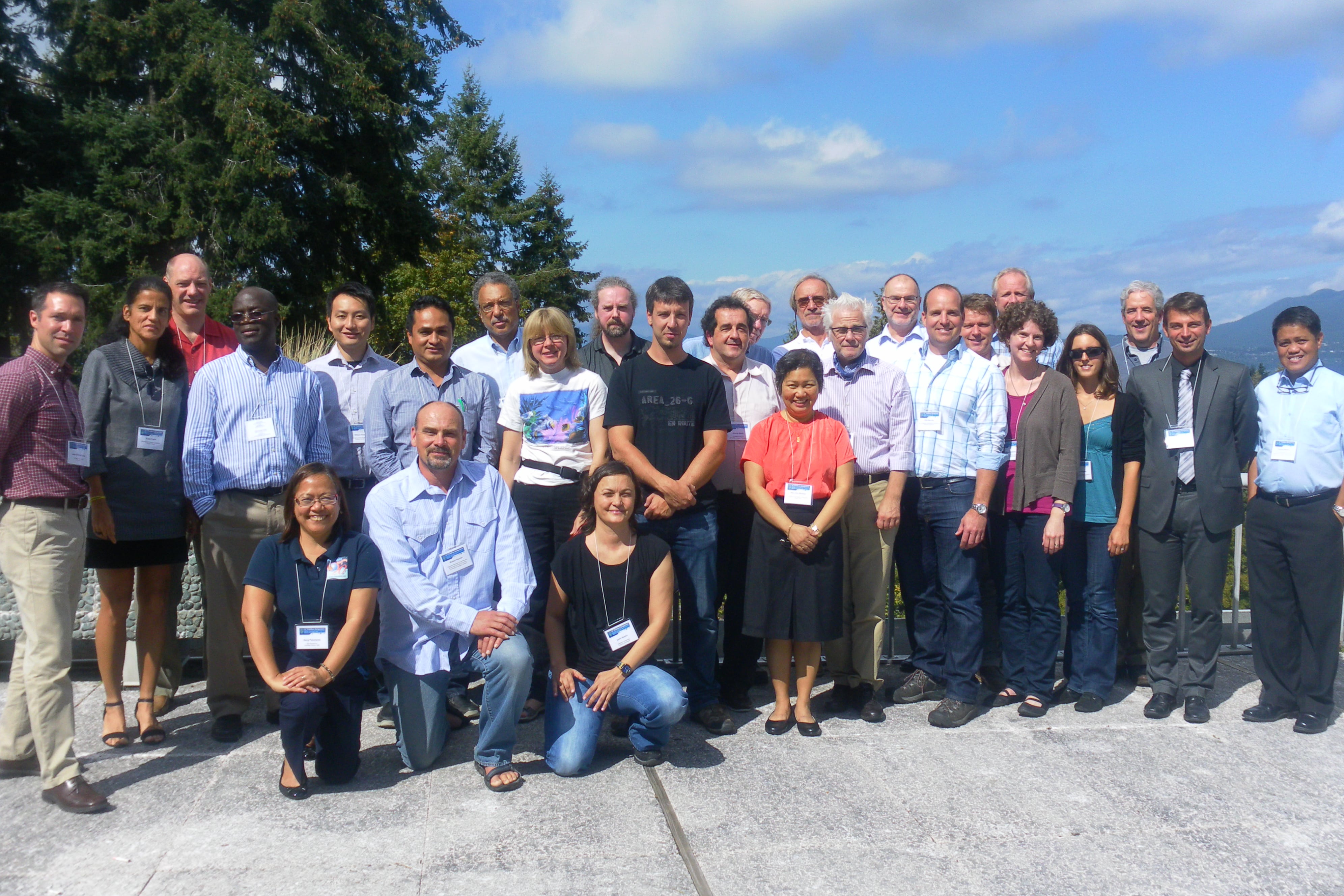Table of contents:
Peer-reviewed articles
Book chapters
Editorship
Working papers
Reports
Miscellaneous items
ARTICLES IN PEER REVIEWED JOURNALS
Jump to: 2015,2014,2013,2012,2011,2010,2009,2008,2007,2006,2005,2004,2003,2002,2001,2000,1999,1998,1997,1988-89
In press
Belhabib D, Mendy A, Subah Y, Broh NT, Jueseah AS, Nipey N, Boeh WW, Willemse N, Zeller D and Pauly D (in press) Fisheries catch under-reporting in The Gambia, Liberia and Namibia, and the three Large Marine Ecosystems which they represent. Environmental Development.
2015
Al-Abdulrazzak D, Zeller D, Belhabib D, Tesfamichael D and Pauly D (2015) Total marine fisheries catches in the Persian/Arabian Gulf from 1950-2010. Regional Studies in Marine Science 2: 28-34. (Full text)
Belhabib D, Sumaila UR, Lam V, Kane EA, Zeller D, Le Billon P and Pauly D (2015) Euros vs. Yuan: Comparing European and Chinese fishing access in West Africa. PLoS ONE 10(3): e0118351. (Full text)
Piroddi C, Gristina M, Zylich K, Greer K, Ulman A, Zeller D and Pauly D (2015) Reconstruction of Italy’s marine fisheries removals and fishing capacity, 1950-2010. Fisheries Research 172: 137-147. (Full text)
Sumaila UR, Lam VWY, Miller D, Teh L, Watson R, Zeller D, Cheung WWL, Côté IM, Rogers A, Roberts C, Sala E and Pauly D (2015) Winners and losers in a world where the high seas is closed to fishing. Nature Scientific Reports 5: 8481 DOI: 8410.1038/srep08481. (Full text)
Ulman A, Çiçek B, Salihoglu I, Petrou A, Patsalidou M, Pauly D and Zeller D (2015) Unifying the catch data of a divided island: Cyprus’s marine fisheries catches, 1950-2010. Environment, Development and Sustainability 17(4): 801-821. (Full text)
Zeller D, Harper S, Zylich K and Pauly D (2015) Synthesis of under-reported small-scale fisheries catch in Pacific-island waters. Coral Reefs 34(1): 25-39. (Full text)
2014
[Top]
Coll M, Carreras M, Cornax MJ, Massutí E, Morote E, Pastor X, Quetglas A, Sáez R, Silva L, Sobrino I, Torres MA, Tudela S, Harper S, Zeller D and Pauly D (2014) Closer to reality: reconstructing total removals in mixed fisheries from Southern Europe. Fisheries Research 154: 179-194. (Full text)
Greer K, Harper S, Zeller D and Pauly D (2014) Evidence for overfishing on pristine coral reefs: reconstructing coastal catches in the Australian Indian Ocean Territories. Journal of the Indian Ocean Region 10(1): 67-80. (Full text)
Harper S, Guzmán HM, Zylich K and Zeller D (2014) Reconstructing Panama’s total fisheries catches from 1950 to 2010: Highlighting data deficiencies and management needs. Marine Fisheries Review 76(1-2): 51-65. (Full text)
Leitão F, Baptista V, Zeller D, Erzini K (2014) Reconstructed catches and trends for mainland Portugal fisheries between 1938 and 2009: implications for sustainability, domestic fish supply and imports. Fisheries Research 155: 33-50. (Full text)
Pauly D and Zeller D (2014). Accurate catches and the sustainability of coral reef fisheries. Current Opinion in Environmental Sustainability 7:44-51. (Full text)
Pauly D, Belhabib D, Blomeyer R, Cheung WWL, Cisneros-Montemayor A, Copeland D, Harper S, Lam V, Mai Y, Le Manach F, Österblom H, Mok KM, van der Meer L, Sanz A, Shon S, Sumaila UR, Swartz W, Watson R, Zhai Y and Zeller D (2014) China’s distant water fisheries in the 21st century. Fish and Fisheries 15: 474-488. (Full text)
Watson R, Zeller D and Pauly D (2014) Primary productivity demands of global fishing fleets. Fish and Fisheries 15(2): 231-241. (Full text)
Zylich K, Harper S, Licandeo R, Vega R, Zeller D and Pauly D (2014) Fishing in Easter Island, a recent history (1950-2010). Latin American Journal of Aquatic Research 42(4): 845-856. (Full text)
2013
[Top]
Abudaya M, Harper S, Ulman A and Zeller D (2013). Correcting miss- and under-reported marine fisheries catches for the Gaza Strip: 1950-2010. Acta Adriatica 54(2): 241-252. (Full text)
Booth S, Hui J, Alojado Z, Lam V, Cheung W, Zeller D, Steyn D and Pauly D (2013). Global deposition of airborne dioxin. Marine Pollution Bulletin 75(1-2): 182-186. (Full text)
Cisneros-Montemayor A, Kirkwood FG, Harper S, Zeller D and Sumaila UR (2013) Economic use value of the Belize marine ecosystem: Potential risks and benefits from offshore oil exploration. Natural Resources Forum 37(4): 221-230. (Full text)
Edelist D, Scheinin A, Sonin O, Shapiro J, Salameh P, Gil R, Benayahu Y, Schulz D and Zeller D (2013). Israel: Reconstructed estimates of total fisheries removals in the Mediterranean, 1950–2010. Acta Adriatica 54(2): 253-246. (Full text)
Froese R, Zeller D, Kleisner K and Pauly D (2013). Worrisome trends in global stock status continue unabated: a response to a comment by R.M. Cook on “What catch data can tell us about the status of global fisheries”. Marine Biology (Berlin) 160:2531-2533. (Full text)
Halpern BS, Gaines SD, Kleisner K, Longo C, Pauly D, Rosenberg AA, Samhouri JF and Zeller D (2013). Halpern et al. reply to “Is the ocean food provision index biased?” Nature 495: E7. (Full text)
Harper S, Zeller D, Hauzer M, Sumaila UR and Pauly D 2013. Women and fisheries: contribution to food security and local economies. Marine Policy 39:56-63. (Full text)
Kleisner K, Longo C, Coll M, Halpern BS, Hardy D, Katona SK, Le Manach F, Pauly D, Rosenberg AA, Samhouri JF, Scarborough C, Sumaila UR, Watson R and Zeller D (2013) Exploring patterns of seafood provision revealed in the Ocean Health Index. AMBIO 42:910-922. (Full text)
Kleisner K, Zeller D, Froese R and Pauly D 2013. Using global catch data for inferences on the world’s marine fisheries. Fish and Fisheries 14(3):293-311. (Full text)
Le Manach F, Chaboud C, Copeland D, Cury P, Gascuel D, Kleisner K, Standing A, Sumaila UR, Zeller D and Pauly D (2013) European Union’s public fishing access agreements in developing countries. PLoS ONE 8(11): e79899. (Full text)
Le Manach F, Andriamahefazafy M, Harper S, Harris A, Hosch G, Lange G-M, Zeller D and Sumaila UR (2013). Who gets what? Developing a more equitable framework for EU fishing agreements. Marine Policy 38:257-266. (Full text)
Ulman A, Bekisoglu S, Zengin M, Knudsen S, Ünal V, Mathews C, Harper S, Zeller D and Pauly D 2013. From bonito to anchovy: A reconstruction of Turkey’s marine fisheries catches (1950-2010) Mediterranean Marine Science 14(2): 309-342. (Full text)
Watson R, Cheung WWL, Anticamara J, Sumaila RU, Zeller D and Pauly D 2013. Global marine yield halved as fishing intensity redoubles. Fish and Fisheries 14(4):493-503. (Full text)
2012
[Top]
Froese R., Zeller D., Kleisner K. and Pauly D. 2012. What catch data can tell us about the status of global fisheries. Marine Biology (Berlin) 159(6): 1283-1292. (Full text)
Halpern BS, Longo C, Hardy D, McLeod KL, Samhouri JF, Katona SK, Kleisner K, Lester SE, O’Leary J, Ranelletti M, Rosenberg AA, Scarborough C, Selig ER, Best BD, Brumbaugh DR, Chapin FS, Crowder LB, Daly KL, Doney SC, Elfes C, Fogarty MJ, Gaines SD, Jacobsen K, Karrer LB, Leslie HM, Neeley E, Pauly D, Polasky S, Ris B, St. Martin K, Stone GS, Sumaila UR and Zeller D. 2012. An index to assess the health and benefits of global marine social-ecological systems. Nature 488: 615-622. (Full text)
Le Manach, F., Gough, C., Harris, A., Humber, F., Harper, S. and Zeller, D. 2012. Unreported fishing, hungry people and political turmoil: the recipe for a food security crisis in Madagascar? Marine Policy 36:218-225. (Full text)
Le Manach, F., Gough, C., Harris, A., Humber, F., Harper, S. and Zeller, D. 2012. Erratum to “Unreported fishing, hungry people and political turmoil: the recipe for a food security crisis in Madagascar”. Marine Policy 36:564. (Full text)
Sumaila UR, Cheung WWL, Dyck A, Gueye KM, Huang L, Lam V, Pauly D, Srinivasan UT, Swartz W, Watson R and Zeller D. 2012. Benefits of rebuilding global marine fisheries outweigh costs. PLoS ONE 7(7): e40542. (Full text)
Sumaila UR, Cisneros-Montemayor A, Dyck A, Huang L, Cheung WWL, Jacquet J, Kleisner K, Lam V, McCrea-Strub A, Swartz W, Watson R, Zeller D and Pauly D 2012. Impact of the Deepwater Horizon oil spill on the Economics of U.S. Gulf fisheries. Canadian Journal of Fisheries and Aquatic Sciences 69: 499-510. (Full text)
2011
[Top]
McCrea-Strub, A., Kleisner, K., Sumaila, U.R., Swartz, W., Watson, R., Zeller, D. and Pauly, D. (2011) Potential Impact of the Deepwater Horizon Oil Spill on Commercial Fisheries in the Gulf of Mexico. Fisheries 36:332-336. (Full text)
McCrea-Strub, A., Zeller, D., Sumaila, U.R., Nelson, J., Balmford, A. and Pauly, D. 2011. Understanding the cost of establishing marine protected areas. Marine Policy 35: 1-9. (Full text)
Zeller, D., Booth, S., Pakhomov, E., Swartz, W. and Pauly, D. 2011. Arctic fisheries catches in Russia, USA and Canada: Baselines for neglected ecosystems. Polar Biology 34(7):955-973. (Full text)
Zeller, D., Rossing, P., Harper, S., Persson, L., Booth, S. and Pauly, D. 2011. The Baltic Sea: estimates of total fisheries removals 1950-2007. Fisheries Research 108: 356-363. (Full text)
2010
[Top]
Anticamara, J.A., Zeller, D. and Vincent, A.C.J. 2010. Spatial and temporal variation of abundance, biomass, and diversity within marine reserves in the Philippines. Diversity and Distributions 16: 529-536. (Full text)
Cheung, W.L., Lam, V., Sarmiento, J., Kearney, K., Watson, R., Zeller, D. and Pauly, D. 2010. Large-scale redistribution of maximum fisheries catch potential in the global ocean under climate change. Global Change Biology 16:24-35. (Full text)
Jacquet, J.L., Fox, H., Motta, H., Ngusaru, A. and Zeller, D. 2010. Few data but many fish: Marine small-scale fisheries catches for Mozambique and Tanzania. African Journal of Marine Science 32(2):197-206. (Full text)
Jacquet, J.L., Zeller, D. and Pauly, D. 2010. Counting fish: A typology for fisheries catch data. Journal of Integrative Environmental Sciences 7(2):135-144. (Full text)
Wielgus, J., Zeller, D., Caicedo-Herrera, D. and Sumaila, U.R. 2010. Estimation of fisheries removals and primary economic impact of the small-scale and industrial marine fisheries in Colombia. Marine Policy 34:506-513. (Full text)
2009
[Top]
Christensen, V., Walters, C., Ahrens, R., Alder, J., Buszowski, J., Christensen, L., Cheung, W.L., Dunne, J., Froese, R., Karpouzi, V., Kastner, K., Kearney, K., Lai, S., Lam, V., Palomares, D., Peters-Mason, A., Piroddi, C., Sarmiento, J.L., Steenbeek, J., Sumaila, R.U., Watson, R., Zeller, D. and Pauly, D. 2009. Database-driven models of the world’s large marine ecosystems. Ecological Modelling 220:1984-1996. (Full text)
Mora, C., Myers, R.A., Coll, M., Libralato, S., Pitcher, T.J., Sumaila, R.U., Zeller, D., Watson, R., Gaston, K.J. and Worm, B. 2009. Management effectiveness of the world’s marine fisheries. PLoS Biology 7(6): 1-11. (Full text)
Worm, B., Hilborn, R., Baum, J.K., Branch, T., Collie, J.S., Costello, C., Fogarty, M.J., Fulton, E.A., Hutchings, J.A., Jennings, S., Jensen, O.P., Lotze, H.K., Mace, P.M., McClanahan, T.R., Minto, C., Palumbi, S.R., Parma, A.M., Ricard, D., Rosenberg, A.A., Watson, R. and Zeller, D. 2009. Rebuilding global fisheries. Science 325: 578-585. (Full text)
2008
[Top]
Jacquet, J.L., Alava, J.J., Ganapathiraju, P., Henderson, S. and Zeller, D. 2008. In hot soup: sharks captured in Ecuador’s waters. Environmental Sciences 5(4):269-283. (Full text)
Zeller, D., Darcy, M., Booth, S., Lowe, M.K. and Martell, S.J. 2008. What about recreational catch? Potential impact on stock assessment for Hawaii’s bottomfish fisheries. Fisheries Research 91:88-97. (Full text)
2007
[Top]
Sumaila, U.R., Khan, A., Watson, R., Munro, G., Zeller, D., Baron, N. and Pauly, D. 2007. The World Trade Organization and global fisheries sustainability. Fisheries Research 88:1-4. (Full text)
Sumaila, U.R., Zeller, D., Watson, R., Alder, J. and Pauly, D. 2007. Potential costs and benefits of marine reserves in the high seas. Marine Ecology Progress Series 345: 305-310. (Full text)
Teh, L., Zeller, D., Cabanban, A., Teh, L. and Sumaila, U.R. 2007. Seasonality and historic trends in the reef fisheries of Pulau Banggi, Sabah, Malaysia. Coral Reefs 26:251-163. (Full text)
Zeller, D., Booth, S., Davis, G. and Pauly, D. 2007. Re-estimation of small-scale fisheries catches for U.S. flag island areas in the Western Pacific: The last 50 years. US Fishery Bulletin 105(2):266-277. (Full text)
2006
[Top]
Zeller, D., Booth, S. and Pauly, D. 2006. Fisheries contributions to GDP: Underestimating small-scale fisheries in the Pacific. Marine Resource Economics 21(4):355-374. (Full text)
Zeller, D., Booth, S., Craig, P. and Pauly, D. 2006. Reconstruction of coral reef fisheries catches in American Samoa, 1950 – 2002. Coral Reefs 25:144-152. (Full text)
2005
[Top]
Booth, S. and Zeller, D. 2005. Mercury, food webs and marine mammals: implications of diet and climate change on human health. Environmental Health Perspectives 113(5): 521-526. (Full text)
Zeller, D. and Pauly, D. 2005. Good news, bad news: Global fisheries discards are declining, but so are total catches. Fish and Fisheries 6:156-159. (Full text)
Zeller, D., Froese, R. and Pauly, D. 2005. On losing and recovering fisheries and marine science data. Marine Policy 29(1):69-73. (Full text)
2004
[Top]
Zeller, D. and Pauly, D. 2004. The future of fisheries: from ‘exclusive’ resource policy to ‘inclusive’ public policy. In: H.I. Browman and K.I. Stergiou (eds.) Perspectives on ecosystem approaches to the management of marine resources. Marine Ecology Progress Series 274:295-303. (Full text)
Zeller D. and Reinert J. 2004. Modelling spatial closures and fishing effort restrictions in the Faroe Islands marine ecosystem. Ecological Modelling 172: 403-420. (Full text)
Zeller, D. and Russ, G.R. 2004. Are fisheries “sustainable”? A counterpoint to Steele and Hoagland. Fisheries Research 67(2): 241-245. (Full text)
2003
[Top]
Christensen, V., Guénette, S., Heymans, J., Walters, C., Watson, R., Zeller, D and Pauly, D. 2003. Hundred-year decline of North Atlantic predatory fishes. Fish and Fisheries 4:1-24. (Full text)
Russ, G.R. and Zeller, D. 2003. From Mare Liberum to Mare Reservarum. Marine Policy 27(1): 75-78. (Full text)
Zeller D, Stoute, SL, and Russ, GR 2003. The movement of reef fishes across marine reserve boundaries: Effects of manipulating a density gradient. Marine Ecology Progress Series 254: 269-280. (Full text)
2002
[Top]
Alder, J., Zeller, D., Pitcher, T.J. and Sumaila, U.R. 2002. A method for evaluating Marine Protected Areas Management. Coastal Management 30(2): 121-131. (Full text)
Pauly, D., Christensen, V., Guénette, S., Pitcher, T.J., Sumaila, U.R., Walters, C.J., Watson, R. and Zeller, D. 2002. Towards sustainability in world fisheries. Insight Review Article. Nature 418: 689-695. (Full text)
Zeller D. 2002 Tidal current orientation of Plectropomus leopardus (Serranidae). Coral Reefs 21:183-187. (Full text)
2001
[Top]
Zeller D. and Pauly D. 2001. Visualisation of standardised life-history patterns. Fish and Fisheries 2(4): 344-355. (Full text)
2000
[Top]
Zeller D. and Russ G.R. 2000. Population estimates and size structure of Plectropomus leopardus (Pisces: Epinephelinae) in relation to no-fishing zones: mark-release-resighting and underwater visual census. Marine and Freshwater Research 51: 221-228. (Full text)
1999
[Top]
Zeller D. 1999. Ultrasonic telemetry: Application in coral reef fisheries research. Fishery Bulletin US 97(4):1058-1065. (Full text)
1998
[Top]
Zeller D. 1998 Spawning aggregations: Patterns of movement of the coral trout Plectropomus leopardus (Serranidae) as determined by ultrasonic telemetry. Marine Ecology Progress Series 162:253-263. (Full text)
Zeller D. and Russ G.R. 1998 Marine reserves: Patterns of adult movement of the coral trout Plectropomus leopardus (Serranidae). Canadian Journal of Fisheries and Aquatic Sciences 55:917-924. (Full text)
1997
[Top]
Zeller D. 1997 Home range and activity patterns of the coral trout Plectropomus leopardus (Serranidae). Marine Ecology Progress Series 154:65-77. (Full text)
1988-89
[Top]
Limpus C.J., Zeller D., Kwan D., and MacFarlane W. 1989 Sea-turtle Rookeries in North-western Torres Strait. Australian Wildlife Research 16:517-525. (Full text)
Zeller D. 1988. Short-term effects of territoriality of a tropical damselfish and experimental exclusion of large fishes on invertebrates in algal turfs. Marine Ecology Progress Series 44:85-93. (Full text)
Book chapters
[Top]
Al-Abdulrazzak D, Zeller D and Pauly D (2014) Understanding fisheries through historical reconstructions: Applications to fishery management and policy at different governance scales. pp. 119-133 In Kittinger JN, McClenachan L, Gedan K and Blight LK (eds.), Marine historical ecology in conservation: Applying the past to manage for the future. University of California Press. (Full text)
Pauly D, Watson R and Zeller D (2012) Where fisheries have been, and why they are going. pp. 15-26 In Soeters K (ed.) Sea the Truth: Essays on Overfishing, Pollution and Climate Change Nicolaas G. Pierson Foundation, Amsterdam, The Netherlands.
Makaiau J, Dalzell P, Dinardo G, Alexander C, Fougner S and Zeller D (2011) Ecosystem Science and Planning. pp. 3-101 In Glazier EW (ed.) Ecosystem-based fisheries management in the western Pacific. Wiley-Blackwell, Ames.
Watson, R., Sumaila, R.U. and Zeller, D. (2011) How much fish is being extracted from the oceans and what it is worth? Pp. 55-71 In Christensen, V. and MacLean, J., (eds.), Ecosystem Approaches to Fisheries: A Global Perspective. Cambridge University Press, Cambridge. (Full text)
Zeller, D. (2011) Reconstructing Time-Series Catch Data. pp. 38-42. In: Glazier, E.W. (ed.) Ecosystem Based Fisheries Management in the Western Pacific. Wiley, Ames.
Christensen, V., Walters, C.J., Ahrens, R., Alder, J., Buszowski, J., Christensen, L.B., Cheung, W.W.L., Dunne, J., Froese, R., Karpouzi, V., Kastner, K., Kearney, K., Lai, S., Lam, V., Palomares, M.L.D., Peters-Mason, A., Piroddi, C., Sarmiento, J.L., Steenbeek, J., Sumaila, R., Watson, R., Zeller, D. and Pauly, D. (2010) Database-driven models of the world’s large marine ecosystems. p. 74-103 In: Sherman, K. and Adams, S., (eds.), Sustainable Development of the World’s Large Marine Ecosystemd during Climate Change: A commemorative volume to advance sustainable development on the occasion of the presentation of the 2010 Gteborg Award. IUCN, Gland, Switzerland.
Zeller, D., Cheung, W.W.L., Close, C. and Pauly, D. (2009) Trends in global marine fisheries – a critical view. p. 87-107 In Wrammer, P., Ackefors, H. and Cullberg, M., (eds.), Fisheries, sustainability and development. Royal Swedish Academy of Agriculture and Forestry, Stockholm. (Full text)
Engelman, R., Pauly, D., Zeller, D., Prinn, R.G., Pinnegar, J.K., Polunin, N.V.C. (2008) Climate, people, fisheries and aquatic ecosystems. Pages 1-15 In Polunin, N.V.C. (ed.), Aquatic Ecosystems: Trends and global prospects. Cambridge University Press, Cambridge. (Full text)
Pauly, D., Alder, J., Booth, S., Cheung, W.W.L., Close, C., Sumaila, U.R., Tavakolie, A., Swartz, W., Watson, R. and Zeller, D. (2008) Fisheries in Large Marine Ecosystems: Descriptions and Diagnoses. pp. 23-40 In: Sherman, K. and G. Hempel (eds.). The UNEP Large Marine Ecosystem Report: a Perspective on Changing Conditions in LMEs of the World’s Regional Seas. UNEP Regional Seas Reports and Studies No. 182, Nairobi. (Full text)
Zeller, D. (2005) From Mare Liberum to Mare Reservarum: Canada’s opportunity for global leadership in ocean resource governance. Pages 1-18 In A. Chircop and M. McConnell (eds.) Ocean Yearbook Volume 19, University of Chicago Press, Chicago. (Full text)
Zeller, D. (2003) Marine Reserves: Time for a Global Perspective. Pages 70-74 In: J.P. Beumer, A. Grant and D.C. Smith (eds.). Aquatic Protected Areas – What works best and how do we know? University of Queensland Press, St. Lucia, Queensland, Australia. (Full text)
O’Dor R., Aitken JP, Bolden S., Babcock RC., Seinto S., Zeller D. and Jackson G. (2001) Using radio-acoustic positioning and telemetry (RAPT) to define and assess marine protected areas (MPAs). Pages 147-166 In J. Sibert and J. Nielsen (eds.) Electronic Tagging and Tracking in Marine Fisheries. Kluwer Academic Publishers, Netherlands.
Editorship
[Top]
Pauly D and Zeller D, editors (2015) Catch Reconstruction: concepts, methods and data sources. Online Publication. Sea Around Us (www.seaaroundus.org), University of British Columbia.
Zylich K, Zeller D, Ang M and Pauly D, editors (2014) Fisheries catch reconstructions: Islands, Part IV. Fisheries Centre Research Reports 22(2), University of British Columbia, Vancouver (Canada). 157 p.
Belhabib D, Zeller D, Harper S and Pauly D, editors (2012) Marine fisheries catches in West Africa, 1950-2010, Part I. Fisheries Centre Research Reports 20(3), Fisheries Centre, University of British Columbia, Vancouver. 104 p.
Harper S, Zylich K, Boonzaier L, Le Manach F, Pauly D and Zeller D, editors (2012) Fisheries catch reconstructions: Islands, Part III. Fisheries Centre Research Reports 20(5), University of British Columbia, Vancouver (Canada). 134 p.
Makaiau, J., Dalzell, P., Dinardo, G., Alexander, C., Fougner, S. and Zeller, D. (section editors) 2011. Section 1: Ecosystem Science and Planning. pp. 3-105. In: Glazier, E.W. (ed.) Ecosystem Based Fisheries Management in the Western Pacific. Wiley-Blackwell, Ames, USA.
Harper, S. and Zeller, D., (Editors) 2011. Fisheries catch reconstructions: Islands, Part II. Fisheries Centre Research Reports 19(4). Fisheries Centre, University of British Columbia, Vancouver, 145 p.
Christensen, V., Lai, S., Valls, A., Palomares, M.L.D., Zeller, D. and Pauly, D. (Editors) 2011. The State of Biodiversity and Fisheries in Regional Seas. Fisheries Center Research Reports Vol. 19(3), Fisheries Centre, University of British Columbia, 82 pp.
Rossing, P., Booth, S. and Zeller, D. (Editors) 2010. Total marine fisheries extractions by country in the Baltic Sea: 1950-present. Vancouver, Fisheries Centre Research Report 18(1), Fisheries Centre, University of British Columbia, 263 pp.
Zeller, D. and Harper, S. (Editors) 2009. Fisheries catch reconstruction: Islands Part I. Fisheries Centre Research Reports 17(5), 104 pp.
Zeller, D. and Pauly, D. (Editors) 2007. Reconstruction of marine fisheries catches for key countries and regions (1950-2004). Fisheries Centre Research Reports 15(2), 163 pp.
Makaiau, J., Dalzell, P., DiNardo, G., Alexander, C., Fougner, S. and Zeller, D. (Editors) 2006. Ecosystem Science and Management Planning Workshop: Development of Ecosystem-based Approaches to Marine Resource Management in the Western Pacific Region. Report for the Western Pacific Regional Fishery Management Council, Honolulu, Hawaii, 157 pp.
Zeller D., Booth, S., Mohammed E. and Pauly D. (editors) 2003. From Mexico to Brazil: Central Atlantic fisheries catch trends and ecosystem models. Fisheries Centre Research Reports 11(6), 264 pp.
Zeller D., Watson R. and Pauly D. (Editors) 2001. Fisheries Impacts on North Atlantic Ecosystems: Catches, effort and national/regional data sets. Fisheries Centre Research Reports 9(3), 254 pp
Working papers
(available at www.seaaroundus.org/working-papers/)
[Top]
Coll M, Carreras M, Cornax MJ, Massutí E, Morote E, Pastor X, Quetglas A, Sáez R, Silva L, Sobrino I, Torres M, Tudela S, Harper S, Zeller D and Pauly D (2015) An estimate of the total catch in the Spanish Mediterranean Sea and Gulf of Cadiz regions (1950-2010). Fisheries Centre Working Paper #2015-60, University of British Columbia, Vancouver. 52 p.
Divovich E, Belhabib D, Zeller D and Pauly D (2015a) Eastern Canada, “a fishery with no clean hands”: Marine fisheries catch reconstruction from 1950 to 2010. Fisheries Centre Working Paper #2015-56, University of British Columbia, Vancouver. 37 p.
Divovich E, Jovanović B, Zylich K, Harper S, Zeller D and Pauly D (2015b) Caviar and politics: A reconstruction of Russia’s marine fisheries in the Black Sea and Sea of Azov from 1950 to 2010. Fisheries Centre Working Paper #2015-84, University of British Columbia, Vancouver. 24 p.
Doherty B, Gibson D, Zhai Y, McCrea-Strub A, Zylich K, Zeller D and Pauly D (2015a) Reconstruction of marine fisheries catches for Subarctic Alaska, 1950-2010. Fisheries Centre Working Paper #2015-82, University of British Columbia, Vancouver. 31 p.
Donadi R, Au A, Zylich K, Harper S and Zeller D (2015) Reconstruction of marine fisheries in El Salvador 1950-2010. Fisheries Centre Working Paper #2015-35, University of British Columbia, Vancouver. 22 p.
Funes M, Zylich K, Divovich E, Zeller D, Lindop A, Pauly D and Box S (2015) Honduras, a fish exporting country: Preliminary reconstructed marine catches in the Caribbean Sea and the Gulf of Fonseca, 1950 – 2010. Fisheries Centre Working Paper #2015-90, University of British Columbia, Vancouver. 16 p.
Gibson D, Cardwell E, Zylich K and Zeller D (2015a) Preliminary reconstruction of total marine fisheries catches for the United Kingdom and the Channel Islands in EEZ equivalent waters (1950-2010). Fisheries Centre Working Paper #2015-76, University of British Columbia, Vancouver. 20 p.
Gibson D, Froese R, Ueberschaer B, Zylich K and Zeller D (2015b) Reconstruction of total marine fisheries catches for Germany in the North Sea (1950-2010). Fisheries Centre Working Paper #2015-09, University of British Columbia, Vancouver. 11 p.
Gibson D, McCrea-Strub A and Zeller D (2015c) Updated reconstruction of Hawaiian fisheries 1950-2010. Fisheries Centre Working Paper #2015-83, University of British Columbia, Vancouver. 8 p.
Gibson D, Zylich K and Zeller D (2015d) Preliminary reconstruction of total marine fisheries catches for the Faeroe Islands in Faroe Islands’ EEZ waters (1950-2010). Fisheries Centre Working Paper #2015-36, University of British Columbia, Vancouver. 12 p.
Gibson D, Zylich K and Zeller D (2015e) Preliminary reconstruction of total marine fisheries catches for the Netherlands in the North Sea (1950-2010). Fisheries Centre Working Paper #2015-46, University of British Columbia, Vancouver. 15 p.
Haas A, Harper S, Zylich K and Zeller D (2015) Reconstruction of Nicaragua’s fisheries catches: 1950-2010. Fisheries Centre Working Paper #2015-23, University of British Columbia, Vancouver. 9 p.
Halouani G, Ben Rais Lasram F, Khalfallah M, Zeller D and Pauly D (2015) Reconstruction of Marine Fisheries catches for Tunisia (1950-2010). Fisheries Centre Working Paper #2015-95, University of British Columbia, Vancouver. 11 p.
Harper S, Frotté L, Booth S, Veitch L and Zeller D (2015) Reconstruction of marine fisheries catches for French Guiana from 1950-2010. Fisheries Centre Working Paper #2015-07, University of British Columbia, Vancouver. 10 p.
Hornby C, Arun Kumar M, Bhathal B, Pauly D and Zeller D (2015a) Reconstruction of the Andaman and Nicobar Islands (India) marine fish catch from 1950-2010. Fisheries Centre Working Paper #2015-75, University of British Columbia, Vancouver. 26 p.
Hornby C, Bhathal B, Pauly D and Zeller D (2015b) Reconstruction of India’s marine fish catch from 1950-2010. Fisheries Centre Working Paper #2015-77, University of British Columbia, Vancouver. 42 p.
Hornby C, Harper S, MacDonald J and Zeller D (2015c) Reconstruction of Suriname’s marine fisheries catches from 1950-2010. Fisheries Centre Working Paper #2015-49, University of British Columbia, Vancouver. 14 p.
Iritani D, Färber L, Zylich K and Zeller D (2015) Reconstruction of fisheries catches for Bosnia-Herzegovina: 1950-2010. Fisheries Centre Working Paper #2015-15, University of British Columbia, Vancouver. 7 p.
Jeanel G, Ramdeen R, Zylich K and Zeller D (2015) Reconstruction of total marine fisheries catch for Antigua and Barbuda (1950-2010). Fisheries Centre Working Paper #2015-13, University of British Columbia, Vancouver. 17 p.
Jovanović B, Divovich E, Harper S, Zeller D and Pauly D (2015) Preliminary estimate of total Russian fisheries catches in the Barents Sea region (ICES subarea I) between 1950 and 2010. Fisheries Centre Working Paper #2015-59, University of British Columbia, Vancouver. 16 p.
Keskin Ç, Ulman A, Raykov V, Daskalov GM, Zylich K, Pauly D and Zeller D (2015) Reconstruction of fisheries catches for Bulgaria: 1950-2010. Fisheries Centre Working Paper #2015-20, University of British Columbia, Vancouver. 18 p.
Khalfallah M, Belhabib D, Zeller D and Pauly D (2015a) Reconstruction of Marine Fisheries catches for Libya (1950-2010). Fisheries Centre Working Paper #2015-47, University of British Columbia, Vancouver. 15 p.
Khalfallah M, Dimech M, Ulman A, Zeller D and Pauly D (2015b) Reconstruction of marine fisheries catches for the Republic of Malta (1950-2010). Fisheries Centre Working Paper #2015-43, University of British Columbia, Vancouver. 12 p.
Khalfallah M, Zeller D and Pauly D (2015c) Reconstruction of marine fisheries catches for Fujairah (UAE) (1950-2010). Fisheries Centre Working Paper #2015-57, University of British Columbia, Vancouver. 12 p.
Khalfallah M, Zylich K, Zeller D and Pauly D (2015d) Reconstruction of marine fisheries catches for Oman (1950-2010). Fisheries Centre Working Paper #2015-89, University of British Columbia, Vancouver. 11 p.
Kleisner K, Brennan C, Garland A, Lingard S, Tracey S, Sahlqvist P, Tsolos A, Pauly D and Zeller D (2015) Australia: Reconstructing estimates of total fisheries removal, 1950-2010. Fisheries Centre Working Paper #2015-02, University of British Columbia, Vancouver. 26 p.
Lindop A, Bultel E, Zylich K and Zeller D (2015a) Reconstructing the former Netherlands Antilles marine catches from 1950 to 2010. Fisheries Centre Working Paper #2015-69, University of British Columbia, Vancouver. 22 p.
Lindop A, Chen T, Zylich K and Zeller D (2015b) A Reconstruction of Colombia’s marine fisheries catches. Fisheries Centre Working Paper #2015-32, University of British Columbia, Vancouver. 15 p.
Lindop A, Ixquiac-Cabrera M, Zylich K and Zeller D (2015c) A reconstruction of marine fish catches in the Republic of Guatemala. Fisheries Centre Working Paper #2015-41, University of British Columbia, Vancouver. 17 p.
MacDonald J, Harper S, Booth S and Zeller D (2015) Guyana Fisheries Catches: 1950-2010. Fisheries Centre Working Paper #2015-21, University of British Columbia, Vancouver. 18 p.
Ramdeen R, Zylich K and Zeller D (2015) Reconstruction of total marine fisheries catches for the US Virgin Islands (1950-2010). Fisheries Centre Working Paper #2015-64, University of British Columbia, Vancouver. 9 p.
Seto K, Belhabib D, Copeland D, Vakily M, Seilert H, Sankoh S, Baio A, Turay I, Harper S, Zeller D, Zylich K and Pauly D (2015) Colonialism, conflict, and fish: a reconstruction of marine fisheries catches for Sierra Leone, 1950-2010. Fisheries Centre Working Paper #2015-74, University of British Columbia, Vancouver. 23 p.
Shon S, Manuel Delgado J, Morato T, Kim Pham C, Zylich K, Zeller D and Pauly D (2015) Reconstruction of marine fisheries catches for Madeira Island, Portugal from 1950-2010. Fisheries Centre Working Paper #2015-52, University of British Columbia, Vancouver. 13 p.
Simmons G, Bremner G, Stringer C, Torkington B, Teh L, Zylich K, Zeller D, Pauly D and Whittaker H (2015) Preliminary reconstruction of marine fisheries catches for New Zealand (1950-2010). Fisheries Centre Working Paper #2015-87, University of British Columbia, Vancouver. 33 p.
Teh L, Zeller D and Pauly D (2015a) Preliminary reconstruction of Thailand’s fisheries catches: 1950-2010. Fisheries Centre Working Paper #2015-01, Fisheries Centre, University of British Columbia, Vancouver. 14 p.
Teh LCL, Zylich K and Zeller D (2015b) FAO area 18 (Arctic Sea): Catch data reconstruction extension of Zeller et al. (2011) to 2010. Fisheries Centre Working Paper #2015-14, University of British Columbia, Vancouver. 5 p.
Ulman A, Burke L, Hind E, Ramdeen R and Zeller D (2015a) Reconstruction of total marine fisheries catches for the Turks and Caicos Islands (1950-2012). Fisheries Centre Working Paper #2015-63, University of British Columbia, Vancouver. 23 p.
Ulman A, Saad A, Zylich K, Pauly D and Zeller D (2015c) Reconstruction of Syria’s fisheries catches from 1950-2010: Signs of overexploitation. Fisheries Centre Working Paper #2015-80, University of British Columbia, Vancouver. 26 p.
van der Meer L, Arancibia H, Zylich K and Zeller D (2015) Reconstruction of total marine fisheries catches for mainland Chile (1950-2010). Fisheries Centre Working Paper #2015-91, University of British Columbia, Vancouver. 15 p.
Villasante S, Macho G, Giráldez J, Rivero Rodriguez S, Isusu de Rivero J, Divovich E, Harper S, Zeller D and Pauly D (2015a) Estimates of total marine fisheries removals from the Northwest of Spain, 1950-2010. Fisheries Centre Working Paper #2015-51, University of British Columbia, Vancouver. 21 p.
Villasante S, Macho G, Isusu de Rivero J, Divovich E, Zylich K, Harper S, Zeller D and Pauly D (2015b) Reconstruction of marine fisheries catches in Argentina (1950-2010). Fisheries Centre Working Paper #2015-50, University of British Columbia, Vancouver. 16 p.
Teh L, Zylich K and Zeller D (2014) Preliminary reconstruction of Bermuda’s marine fisheries catches, 1950-2010. Fisheries Centre Working Paper #2014-24, Fisheries Centre, University of British Columbia, Vancouver. 17 p.
Piroddi C, Gristina M, Zylich K, Ulman A, Zeller D and Pauly D (2014) Reconstruction of Italy’s marine fisheries catches (1950-2010). Fisheries Centre Working Paper #2014-22, Fisheries Centre, University of British Columbia, Vancouver. 41 p.
Shon S, Harper S and Zeller D (2014) Reconstruction of marine fisheries catches for the Democratic People’s Republic of Korea (North Korea) from 1950-2010. Fisheries Centre Working Paper #2014-20, Fisheries Centre, University of British Columbia, Vancouver. 11 p.
Shon S, Harper S and Zeller D (2014) Reconstruction of marine fisheries catches for the Republic of Korea (South Korea) from 1950-2010. Fisheries Centre Working Paper #2014-19, Fisheries Centre, University of British Columbia, Vancouver. 13 p.
Teh L, Shon S, Zylich K and Zeller D (2014) Reconstructing Cambodia’s marine fisheries catch, 1950-2010. Fisheries Centre Working Paper #2014-18, Fisheries Centre, University of British Columbia, Vancouver. 12 p.
Teh L, Zeller D, Zylich K, Hguyen G and Harper S (2014) Reconstructing Vietnam’s marine fisheries catch, 1950-2010. Fisheries Centre Working Paper #2014-17, Fisheries Centre, University of British Columbia, Vancouver. 10 p.
Ullah H, Gibson D, Knip D, Zylich K and Zeller D (2014) Reconstruction of total marine fisheries catches for Bangladesh: 1950-2010. Fisheries Centre Working Paper #2014-15, Fisheries Centre, University of British Columbia, Vancouver. 10 p.
Persson L, Lindop A, Harper S, Zylich K and Zeller D (2014) Failed state: Reconstruction of domestic fisheries catches in Somalia 1950-2010. Fisheries Centre Working Paper #2014-10, Fisheries Centre, University of British Columbia, Vancouver. 38 p.
Teh L, Kinch J, Zylich K and Zeller D (2014) Reconstructing Papua New Guinea’s marine fisheries catch, 1950-2010. Fisheries Centre Working Paper #2014-09, Fisheries Centre, University of British Columbia, Vancouver. 25 p.
Leitão F, Baptista V, Erzini K, Iritani D and Zeller D (2014) Reconstruction of mainland Portugal fisheries catches 1950-2010. Fisheries Centre Working Paper #2014-08, Fisheries Centre, University of British Columbia, Vancouver. 29 p.
Zylich K, Harper S, Licanceo R, Vega R, Zeller D and Pauly D (2014) Fishing in Easter Island, a recent history (1950-2010). La Pesca en Isla de Pascua, una historia reciente (1950-2010). Fisheries Centre Working Paper #2014-07, Fisheries Centre, University of British Columbia, Vancouver. 19 p.
Vali S, Rhodes K, Au A, Zylich K, Harper S and Zeller D (2014) Reconstruction of total fisheries catches for the Federated States of Micronesia (1950-2009). Fisheries Centre Working Paper #2014-06, Fisheries Centre, University of British Columbia, Vancouver. 16 p.
Zylich K, Harper S and Zeller D (2014) Reconstruction of marine fisheries catches for the Republic of Kiribati, 1950-2010. Fisheries Centre Working Paper #2014-04, Fisheries Centre, University of British Columbia, Vancouver. 25 p.
Zylich K, Shon S, Harper S and Zeller D (2014) Reconstruction of total marine fisheries catches for the Republic of Vanuatu, 1950-2010. Fisheries Centre Working Paper 2014-03, Fisheris Centre, University of British Columbia, Vancouver. 17 p.
Haas A, Harper S, Zylich K, Hehre J and Zeller D (2014) Reconstruction of the Republic of the Marshall Islands fisheries catches: 1950-2010. Fisheries Centre Working Paper #2014-02, Fisheries Centre, University of British Columbia, Vancouver. 15 p.
Miller D and Zeller D (2013) Reconstructing Ireland’s marine fisheries catches: 1950-2010. Fisheries Centre Working Paper #2013-10, Fisheries Centre, University of British Columbia, Vancouver. 48 p.
Ulman A, Çiçek B, Salihoglu I, Petrou A, Patsalidou M, Pauly D and Zeller D (2013) The reconstruction and unification of Cyprus’ marine fisheries catch data, 1950-2010. Fisheries Centre Working Paper #2013-09, Fisheries Centre, University of British Columbia, Vancouver. 72 p.
Belhabib D, Mendy A, Zeller D, Pauly D (2013) Big fishing for small fishes: six decades of fisheries in The Gambia, “the smiling coast of Africa”. Fisheries Centre Working Papers #2013-07, Fisheries Centre, University of British Columbia, Vancouver. 20 p.
Belhabib D, Subah Y, Broh NT, Jueseah AS, Nipey JN, Boeh WY, Copeland D, Zeller D, Pauly D (2013) When ‘Reality leaves a lot to the imagination’: Liberian fisheries from 1950 to 2010. Fisheries Centre Working Papers #2013-06, Fisheries Centre, University of British Columbia, Vancouver. 18 p.
Hornby C, Harper S, MacDonald J and Zeller D (2012) Reconstruction of Suriname’s marine fisheries catches from 1950-2010. Fisheries Centre Working Paper #2012-10, Vancouver (Canada). 24 p.
Chaitanya D, Harper S and Zeller D (2012) Reconstruction of total marine fisheries catches for the Pitcairn Islands (1950-2009). Fisheries Centre Working Paper #2012-07, Vancouver (Canada). 10 p.
Doyle B, Harper S, Jacquet J and Zeller D (2012) Reconstructing marine fisheries catches in the Solomon Islands (1950-2009). Fisheries Centre Working Paper #2012-08, Vancouver (Canada). 17 p.
Lingard S, Harper S and Zeller D (2012) Reconstructed catches of Samoa (1950-2009). Fisheries Centre Working Paper #2012-06, Vancouver (Canada). 34 p.
Trujillo P, Cisneros-Montemayor AM, Harper S and Zeller D (2012) Reconstruction of Costa Rica’s marine fisheries catches (1950-2008). Fisheries Centre Working Paper #2012-03, Vancouver (Canada). 21 p.
Zylich K, Harper S, Winkler N and Zeller D (2012) Reconstruction of marine fisheries catches for Niue (1950-2009). Fisheries Centre Working Paper #2012-05, Vancouver (Canada). 17 p.
Zylich K, O’Meara D, Jacquet J, Harper S and Zeller D 2012. Reconstruction of marine fisheries catches for the Republic of Fiji (1950-2009). Working Paper # 2012-02, Fisheries Centre, University of British Columbia, Vancouver. 27 p. [Available at: www.fisheries.ubc.ca/publications/working/index.php]
Cheung, W.W.L., Booth, S., Zeller, D. and Pauly, D. 2010. Impact of climate change on US marine fisheries with emphasis on the Gulf and Southeast Atlantic States. Working Paper #2010-12, The University of British Columbia, Vancouver, B.C., Canada [Available at: www.fisheries.ubc.ca/publications/working/index.php], Vancouver, 8 p.
Zeller, D., Booth, S. and Pauly, D. 2007. Historic catch reconstruction for coral reef- and bottom-fisheries in the State of Hawaii, 1950-2002. Working Paper #2007-06, The University of British Columbia, Vancouver, B.C., Canada [Available at: www.fisheries.ubc.ca/publications/working/index.php]
Jacquet, J.L. and Zeller, D. 2007. National conflict and fisheries: Reconstructing marine fisheries catches for Mozambique, 1950-2004. Working Paper #2007-02, The University of British Columbia, Vancouver, B.C., Canada [Available at: www.fisheries.ubc.ca/publications/working/index.php]
Teh, L., Zeller, D., Cabanban, A., Teh, L. and Sumaila, U.R. 2006. Seasonality and historic trends in the reef fisheries of Pulau Banggi, Sabah, Malaysia. Fisheries Centre Working Paper #2005-07, The University of British Columbia, Vancouver, B.C., Canada [Available at: www.fisheries.ubc.ca/publications/working/index.php]
Pauly, D., Booth, S., Christensen, V., Cheung, W.L., Close, C., Kitchingman, A., Palomares, M.L.D., Watson, R. and Zeller, D. 2005. On the Exploitation of Elasmobranchs, with Emphasis on Cowtail Stingray Pastinachus sephen (Family Dasyatidae). Fisheries Centre Working Paper #2005-07, The University of British Columbia, Vancouver, B.C., Canada [Available at: www.fisheries.ubc.ca/publications/working/index.php], 37 p.
Zeller, D., Booth, S. and Pauly, D. 2005. Fisheries contributions to GDP: Underestimating small-scale fisheries in the Pacific. Fisheries Centre Working Paper #2005-05, The University of British Columbia, Vancouver, B.C., Canada [Available at: www.fisheries.ubc.ca/publications/working/index.php], 21 p.
Reports
(available at www.seaaroundus.org/articles/)
[Top]
Baust S, Teh L, Harper S and Zeller D (2015) South Africa’s marine fisheries catches (1950–2010). pp. 129-150 In Le Manach F and Pauly D (eds.), Fisheries catch reconstructions in the Western Indian Ocean, 1950-2010. Fisheries Centre Research Reports 23(2), University of British Columbia, Vancouver.
Bultel E, Doherty B, Herman A, Le Manach F and Zeller D (2015) An update of the reconstructed marine fisheries catches of Tanzania with taxonomic breakdown. pp. 151-161 In Le Manach F and Pauly D (eds.), Fisheries catch reconstructions in the Western Indian Ocean, 1950-2010. Fisheries Centre Research Reports 23(2), University of British Columbia, Vancouver.
Doherty B, Herfaut J, Le Manach F, Harper S and Zeller D (2015) Reconstructing domestic marine fisheries in Mayotte from 1950–2010. pp. 53-65 In Le Manach F and Pauly D (eds.), Fisheries catch reconstructions in the Western Indian Ocean, 1950-2010. Fisheries Centre Research Reports 23(2), University of British Columbia, Vancouver.
Doherty B, McBride MM, Brito AJ, Le Manach F, Sousa L, Chauca I and Zeller D (2015) Marine fisheries in Mozambique: catches updated to 2010 and taxonomic disaggregation. pp. 67-81 In Le Manach F and Pauly D (eds.), Fisheries catch reconstructions in the Western Indian Ocean, 1950-2010. Fisheries Centre Research Reports 23(2), University of British Columbia, Vancouver.
Persson L, Lindop A, Harper S, Zylich K and Zeller D (2015) Failed state: reconstruction of domestic fisheries catches in Somalia 1950–2010. pp. 111-127 In Le Manach F and Pauly D (eds.), Fisheries catch reconstructions in the Western Indian Ocean, 1950-2010. Fisheries Centre Research Reports 23(2), University of British Columbia, Vancouver.
Piroddi C, Gristina M, Zylich K, Ulman A, Zeller D and Pauly D (2014) Reconstruction of Italy’s marine fisheries catches (1950-2010). Fisheries Centre Working Paper #2014-22, Fisheries Centre, University of British Columbia, Vancouver. 41 p.
Au A, Zylich K and Zeller D (2014) Reconstruction of total marine fisheries catches for Cuba (1950-2010). pp. 25-32 In Zylich K, Zeller D, Ang M and Pauly D (eds.), Fisheries catch reconstructions: Islands, Part IV. Fisheries Centre Research Reports 22(2), Fisheries Centre, University of British Columbia, Vancouver (Canada).
Haas A, Harper S, Zylich K, Here J and Zeller D (2014) Reconstruction of the Republic of the Marshall Islands catches: 1950-2010. pp. 121-128 In Zylich K, Zeller D, Ang M and Pauly D (eds.), Fisheries catch reconstructions: Islands, Part IV. Fisheries Centre Research Reports 22(2), Fisheries Centre, University of British Columbia, Vancouver (Canada).
Hemmings M, Harper S and Zeller D (2014) Reconstruction of total marine catches for the Maldives: 1950-2010. pp. 107-120 In Zylich K, Zeller D, Ang M and Pauly D (eds.), Fisheries catch reconstructions: Islands, Part IV. Fisheries Centre Research Reports 22(2), Fisheries Centre, University of British Columbia, Vancouver (Canada).
Ramdeen R, Harper S and Zeller D (2014) Reconstruction of total marine fisheries catches for Dominica (1950-2010). pp. 33-41 In Zylich K, Zeller D, Ang M and Pauly D (eds.), Fisheries catch reconstructions: Islands, Part IV. Fisheries Centre Research Reports 22(2), Fisheries Centre, University of British Columbia, Vancouver (Canada).
Ramdeen R, Harper S, Zylich K and Zeller D (2014) Reconstruction of total marine fisheries catches for the British Virgin Islands (1950-2010). pp. 9-16 In Zylich K, Zeller D, Ang M and Pauly D (eds.), Fisheries catch reconstructions: Islands, Part IV. Fisheries Centre Research Reports 22(2), Fisheries Centre, University of British Columbia, Vancouver (Canada).
Ramdeen R, Zylich K and Zeller D (2014) Reconstruction of total marine fisheries catches for Anguilla (1950-2010). pp. 1-8 In Zylich K, Zeller D, Ang M and Pauly D (eds.), Fisheries catch reconstructions: Islands, Part IV. Fisheries Centre Research Reports 22(2), Fisheries Centre, University of British Columbia, Vancouver (Canada).
Ramdeen R, Zylich K and Zeller D (2014) Reconstruction of total marine fisheries catches for St. Kitts and Nevis (1950-2010). pp. 129-136 In Zylich K, Zeller D, Ang M and Pauly D (eds.), Fisheries catch reconstructions: Islands, Part IV. Fisheries Centre Research Reports 22(2), Fisheries Centre, University of British Columbia, Vancouver (Canada).
van der Meer L, Ramdeen R, Zylich K and Zeller D (2014) Reconstruction of total marine fisheries catches for the Dominican Republic (1950-2010). pp. 43-53 In Zylich K, Zeller D, Ang M and Pauly D (eds.), Fisheries catch reconstructions: Islands, Part IV. Fisheries Centre Research Reports 22(2), Fisheries Centre, University of British Columbia, Vancouver (Canada).
Zeller D and Pauly D (2014) Reconstruction of domestic fisheries catches in the Chagos Archipelago: 1950-2010. pp. 17-23 In Zylich K, Zeller D, Ang M and Pauly D (eds.), Fisheries catch reconstructions: Islands, Part IV. Fisheries Centre Research Reports 22(2), Fisheries Centre, University of British Columbia, Vancouver (Canada).
Zylich K, Harper S and Zeller D (2014) Reconstruction of marine fisheries catches for the Republic of Kiribati (1950-2010). pp. 89-105 In Zylich K, Zeller D, Ang M and Pauly D (eds.), Fisheries catch reconstructions: Islands, Part IV. Fisheries Centre Research Reports 22(2), Fisheries Centre, University of British Columbia, Vancouver (Canada).
Zylich K, Shon S, Harper S and Zeller D (2014) Reconstruction of total marine fisheries catches for the Republic of Vanuatu, 1950-2010. pp. 147-156 In Zylich K, Zeller D, Ang M and Pauly D (eds.), Fisheries catch reconstructions: Islands, Part IV. Fisheries Centre Research Reports 22(2), Fisheries Centre, University of British Columbia, Vancouver (Canada).
Hornby C, Moazzam M, Zylich K and Zeller D (2014) Reconstruction of Pakistan’s marine fisheries catches (1950 – 2010). FAO Fisheries and Aquaculture Circular No. 1085. RAP/C1085(En), Food and Agriculture Organization, Karachi, Pakistan. 39 p.
Roshan Moniri N, Roshan Moniri N, Zeller D, Al-Abdulrazzak D, Zylich K and Belhabib D (2013) Fisheries catch reconstruction for Iran, 1950-2010. pp. 9-18 In Al-Abdulrazzak D and Pauly D (eds.), From dhows to trawlers: a recent history of fisheries in the Gulf countries, 1950-2010. Fisheries Centre Research Reports 21(2). Fisheries Centre, University of British Columbia, Vancouver.
Belhabib D, Pauly D, Harper S and Zeller D (2012) Reconstruction of marine fisheries catches for Algeria, 1950-2010. pp. 1-22 In Belhabib D, Zeller D, Harper S and Pauly D (eds.), Marine fisheries catches in West Africa, 1950-2010, part I. Fisheries Centre Research Reports 20(3), Fisheries Centre, University of British Columbia, Vancouver.
Belhabib D, Harper S, Zeller D and Pauly D (2012) Reconstruction of marine fisheries catches from Morocco (north, central and south), 1950-2010. pp. 23-40 In Belhabib D, Zeller D, Harper S and Pauly D (eds.), Marine fisheries catches in West Africa, 1950-2010, part I. Fisheries Centre Research Reports 20(3), Fisheries Centre, University of British Columbia, Vancouver.
Belhabib D, Harper S and Zeller D (2012) An overview of fish removals from Morocco by Distant-Water Fleets, 1950-2010. pp. 41-60 In Belhabib D, Zeller D, Harper S and Pauly D (eds.), Marine fisheries catches in West Africa, 1950-2010, part I. Fisheries Centre Research Reports 20(3), Fisheries Centre, University of British Columbia, Vancouver.
Belhabib D, Gascuel D, Kane EA, Harper S, Zeller D and Pauly D (2012) Preliminary estimation of realistic fisheries removals from Mauritania, 1950-2010. pp. 61-78 In Belhabib D, Zeller D, Harper S and Pauly D (eds.), Marine fisheries catches in West Africa, 1950-2010, part I. Fisheries Centre Research Reports 20(3), Fisheries Centre, University of British Columbia, Vancouver.
Trindade Santos I, Monteiro CA, Harper S, Zylich K, Zeller D and Belhabib D (2012) Reconstruction of marine fisheries catches for the Republic of Cape Verde, 1950-2010. pp. 79-90 In Belhabib D, Zeller D, Harper S and Pauly D (eds.), Marine fisheries catches in West Africa, 1950-2010, part I. Fisheries Centre Research Reports 20(3), Fisheries Centre, University of British Columbia, Vancouver.
Belhabib D, Doumbouya A, Diallo I, Traore S, Camara Y, Copeland D, Gorez B, Harper S, Zeller D and Pauly D (2012) Guinean fisheries, past, present and… future? pp. 91-104 In Belhabib D, Zeller D, Harper S and Pauly D (eds.), Marine fisheries catches in West Africa, 1950-2010, part I. Fisheries Centre Research Reports 20(3), Fisheries Centre, University of British Columbia, Vancouver.
Greer K, Harper S, Zeller D and Pauly D (2012) Cocos (Keeling) Islands and Christmas Island: Brief history of fishing and coastal catches (1950-2010). pp. 1-13 In Harper S, Zylich K, Boonzaier L, Le Manach F, Pauly D and Zeller D (eds.), Fisheries catch reconstructions: Islands, Part III. Fisheries Centre Research Reports 20(5), Fisheries Centre, University of British Columbia, Vancouver (Canada).
Haas A, Rongo T, Hefferman N, Harper S and Zeller D (2012) Reconstruction of the Cook Islands fisheries catches: 1950-2010. pp. 15-24 In Harper S, Zylich K, Boonzaier L, Le Manach F, Pauly D and Zeller D (eds.), Fisheries catch reconstructions: Islands, Part III. Fisheries Centre Research Reports 20(5), Fisheries Centre, University of British Columbia, Vancouver (Canada).
Zylich K, O’Meara D, Jacquet J, Harper S and Zeller D (2012) Reconstruction of marine fisheries catches for the Republic of Fiji (1950-2009). pp. 25-36 In Harper S, Zylich K, Boonzaier L, Le Manach F, Pauly D and Zeller D (eds.), Fisheries catch reconstructions: Islands, Part III. Fisheries Centre Research Reports 20(5), Fisheries Centre, University of British Columbia, Vancouver (Canada).
Ramdeen R, Belhabib D, Harper S and Zeller D (2012) Reconstruction of total marine fisheries catches for Haiti and Navassa Island (1950-2010). pp. 37-45 In Harper S, Zylich K, Boonzaier L, Le Manach F, Pauly D and Zeller D (eds.), Fisheries catch reconstructions: Islands, Part III. Fisheries Centre Research Reports 20(5), Fisheries Centre, University of British Columbia, Vancouver (Canada).
Lingard S, Harper S, Aiken C, Hado N, Smikle S and Zeller D (2012) Marine fisheries of Jamaica: total reconstructed catch 1950-2010. pp. 47-59 In Harper S, Zylich K, Boonzaier L, Le Manach F, Pauly D and Zeller D (eds.), Fisheries catch reconstructions: Islands, Part III. Fisheries Centre Research Reports 20(5), Fisheries Centre, University of British Columbia, Vancouver (Canada).
Zylich K, Harper S and Zeller D (2012) Reconstruction of marine fisheries catches for the Kermadec Islands (1950-2010). pp. 61-67 In Harper S, Zylich K, Boonzaier L, Le Manach F, Pauly D and Zeller D (eds.), Fisheries catch reconstructions: Islands, Part III. Fisheries Centre Research Reports 20(5), Fisheries Centre, University of British Columbia, Vancouver (Canada).
Ramdeen R, Ponteen A, Harper S and Zeller D (2012) Reconstruction of total marine fisheries catches for Montserrat (1950-2010). pp. 69-76 In Harper S, Zylich K, Boonzaier L, Le Manach F, Pauly D and Zeller D (eds.), Fisheries catch reconstructions: Islands, Part III. Fisheries Centre Research Reports 20(5), Fisheries Centre, University of British Columbia, Vancouver (Canada).
Zylich K, Harper S, Winkler N and Zeller D (2012) Reconstruction of marine fisheries catches for Niue (1950-2010). pp. 77-86 In Harper S, Zylich K, Boonzaier L, Le Manach F, Pauly D and Zeller D (eds.), Fisheries catch reconstructions: Islands, Part III. Fisheries Centre Research Reports 20(5), Fisheries Centre, University of British Columbia, Vancouver (Canada).
Chaitanya D, Harper S and Zeller D (2012) Reconstruction of total marine fisheries catches for the Pitcairn Islands (1950-2009). pp. 87-94 In Harper S, Zylich K, Boonzaier L, Le Manach F, Pauly D and Zeller D (eds.), Fisheries catch reconstructions: Islands, Part III. Fisheries Centre Research Reports 20(5), Fisheries Centre, University of British Columbia, Vancouver (Canada).
Boonzaier L, Harper S, Zeller D and Pauly D (2012) A brief history of fishing in the Prince Edward Islands, South Africa, 1950-2010. pp. 95-101 In Harper S, Zylich K, Boonzaier L, Le Manach F, Pauly D and Zeller D (eds.), Fisheries catch reconstructions: Islands, Part III. Fisheries Centre Research Reports 20(5), Fisheries Centre, University of British Columbia, Vancouver (Canada).
Lingard S, Harper S and Zeller D (2012) Reconstructed catches for Samoa 1950-2010. pp. 103-118 In Harper S, Zylich K, Boonzaier L, Le Manach F, Pauly D and Zeller D (eds.), Fisheries catch reconstructions: Islands, Part III. Fisheries Centre Research Reports 20(5), Fisheries Centre, University of British Columbia, Vancouver (Canada).
Doyle B, Harper S, Jacquet J and Zeller D (2012) Reconstructing marine fisheries catches in the Solomon Islands: 1950-2009. pp. 119-134 In Harper S, Zylich K, Boonzaier L, Le Manach F, Pauly D and Zeller D (eds.), Fisheries catch reconstructions: Islands, Part III. Fisheries Centre Research Reports 20(5), Fisheries Centre, University of British Columbia, Vancouver (Canada).
Pauly D, Kleisner K, Bhathal B, Boonzaier L, Freire K, Greer K, Hornby C, Lam V, Palomares ML, McCrea Strub A, van der Meer L and Zeller D (2012) Towards increasing fisheries’ contribution to food security. Part I: The potentials of Brazil, Chile, India and the Philippines. Report by the Sea Around Us Project to Oceana, Vancouver. 111 p.
Pauly D, Belhabib D, Cheung W, Cisneros-Montemayor A, Harper S, Lam V, Mai YY, Le Manach F, Mok KM, van der Meer L, Shon S, Swartz W, Sumaila UR, Watson R, Zhai Y and Zeller D (2012) Catches [of the Chinese distant-water fleet] pp. 21-29 & 81-85 In Blomeyer R, Goulding I, Pauly D, Sanz A and K. S (eds.), The role of China in World Fisheries. European Parliament, Directorate General for Internal Policies, Policy Department B: Structural and Cohesion Policies – Fisheries, Brussels.
Palomares, M.L.D., Chaitanya, D., Harper, S., Zeller, D. and Pauly, D. (2011) The marine biodiversity and fisheries catches of the Pitcairn Island group. A report prepared for the Global Ocean Legacy project of the Pew Environment Group by the Sea Around Us Project, Fisheries Centre, Vancouver, 42 p.
BOBLME (2011) Fisheries catches for the Bay of Bengal Large Marine Ecosystem since 1950. Report prepared by S. Harper, D. O’Meara, S. Booth, D. Zeller and D. Pauly (Sea Around Us Project). Bay of Bengal Large Marine Ecosystem Project, BOBLME-2011-Ecology-16, Phuket, 146 p.
Sumaila, U.R., Dyck, A., Munro, G., Grønbæk, L., Huang, L., Bawumia, M., Arnason, R., Vestergaard, N., Hannesson, R., Chuenpagdee, R., Charles, T., Cheung, W.L., Cisneros-Montemayor, A., Lam, V., Zeller, D., Teh, L., Swartz, W., Pauly, D., Schorr, D. and Watson, R. 2011. Fisheries, investing in natural capital, pp. 77-109 In: UNEP (ed.) Towards a Green Economy: Pathways to Sustainable Development and Poverty Eradication. United Nations Environment Programme, New York. www.unep.org/greeneconomy
Biery, L., Palomares, M.L.D., Morissette, L., Cheung, W.W.L., Watson, R., Harper, S., Jacquet, J., Zeller, D. and Pauly, D. (2011) Sharks in the seas around us: How the Sea Around Us Project is working to shape our collective understanding of global shark fisheries. Report by the Sea Around Us Project to the Pew Environment Group, Fisheries Centre, University of British Columbia, Vancouver, 54 p.
Lai, S., Felinto, D., Steenbeek, J., Buszowski, J., Valls, A., Watson, R., Zeller, D., Pauly, D. and Christensen, V. 2011. Deriving indicators for Regional Seas. p. 3-9 In Christensen, V., Lai, S., Valls, A., Palomares, M.L.D., Zeller, D. and Pauly, D., (eds.), The state of biodiversity and fisheries in Regional Seas. Fisheries Centre Research Reports 19(3), Fisheries Centre, University of British Columbia, Vancouver.
Cheung, W.W.L., Lam, V., Sarmiento, J.L., Kearney, K., Watson, R., Zeller, D. and Pauly, D. 2011. Global-warming induced changes in the catch potential of Regional Seas. p. 50-54 In: Christensen, V., Lai, S., Palomares, M.L.D., Zeller, D. and Pauly, D., (eds.), The state of biodiversity and fisheries in Regional Seas. Fisheries Centre Research Reports 19(3), Fisheries Centre, University of British Columbia, Vancouver.
Cheung, W.W.L., Zeller, D. and Pauly, D. 2011. Projected species shifts due to climate change in the Canadian Marine Ecoregions. Report to Environment Canada, Vancouver, 46 p.
Zeller, D. 2010. Marine Trophic Index. p. 132-133 In: Tyrrell, T., Chenery, A., Bubb, P., Stanwell-Smith, D. and Walpole, M., (eds.), Biodiversity indicators and the 2010 biodiversity target: Outputs, experiences and lessons learnt from the 2010 Biodiversity Indicators Partnership. CBD Technical Series No. 53, Convention on Biological Diversity, Montreal.
Zeller, D., Bale, S., Booth, S., Rossing, P., Harper, S. and Pauly, D. 2010. Fisheries catches from the Baltic Sea Large Marine Ecosystem: 1950-2007. p. 5-35 In Rossing, P., Booth, S. and Zeller, D., (eds.), Total marine fisheries extractions by country in the Baltic Sea: 1950-present. Fisheries Centre Research Report 18(1), Fisheries Centre, University of British Columbia, Vancouver.
Veitch, L., Toliusis, S., Booth, S., Rossing, P., Harper, S. and Zeller, D. 2010. Catch reconstruction for Lithuania in the Baltic Sea from 1950-2007. p. 145-163 In Rossing, P., Booth, S. and Zeller, D., (eds.), Total marine fisheries extractions by country in the Baltic Sea: 1950-present. Fisheries Centre Research Report 18(), Fisheries Centre, University of British Columbia, Vancouver.
Veitch, L., Booth, S., Harper, S., Rossing, P. and Zeller, D. 2010. Catch reconstruction for Estonia in the Baltic Sea from 1950-2007. p. 61-82 In Rossing, P., Booth, S. and Zeller, D., (eds.), Total marine fisheries extractions by country in the Baltic Sea: 1950-present. Fisheries Centre Research Report 18(1), Fisheries Centre, University of British Columbia, Vancouver.
Rossing, P., Plikshs, M., Booth, S., Veitch, L. and Zeller, D. 2010. Catch recosntruction for Latvia in the Baltic Sea from 1950-2007. p. 125-143 In Rossing, P., Booth, S. and Zeller, D., (eds.), Total marine fisheries extractions by country in the Baltic Sea: 1950-present. Fisheries Centre Research Report 18(1), Fisheries Centre, University of British Columbia, Vancouver.
Rossing, P., Hammer, C., Bale, S., Harper, S., Booth, S. and Zeller, D. 2010. Germany’s marine fisheries catches in the Baltic Sea (1950-2007). p. 105-124 In Rossing, P., Booth, S. and Zeller, D., (eds.), Total marine fisheries extractions by country in the Baltic Sea: 1950-present. Fisheries Centre Research Report 18(1), Fisheries Centre, University of British Columbia, Vancouver.
Rossing, P., Bale, S., Harper, S. and Zeller, D. 2010. Baltic Sea fisheries catches for Finland (1950-2007). p. 83-103 In Rossing, P., Booth, S. and Zeller, D., (eds.), Total marine fisheries extractions by country in the Baltic Sea: 1950-present. Fisheries Centre Research Report 18(1), Fisheries Centre, University of British Columbia, Vancouver.
Harper, S., Shibaev, S.V., Baryshnikova, O., Rossing, P., Booth, S. and Zeller, D. 2010. Russian fisheries catches in the Baltic Sea from 1950-2007. p. 189-223 In Rossing, P., Booth, S. and Zeller, D., (eds.), Total marine fisheries extractions by country in the Baltic Sea: 1950-present. Fisheries Centre Research Report 18(1), Fisheries Centre, University of British Columbia, Vancouver.
Bale, S., Rossing, P., Booth, S. and Zeller, D. 2010. Denmark’s marine fisheries catches in the Baltic Sea (1950-2007). p. 37-59 In Rossing, P., Booth, S. and Zeller, D., (eds.), Total marine fisheries extractions by country in the Baltic Sea: 1950-present. Fisheries Centre Research Report 18(1), Fisheries Centre, University of British Columbia, Vancouver.
Bale, S., Rossing, P., Booth, S., Wowkonowicz, P. and Zeller, D. 2010. Poland’s fisheries catches in the Baltic Sea (1950-2007). p. 165-187 In Rossing, P., Booth, S. and Zeller, D., (eds.), Total marine fisheries extractions by country in the Baltic Sea: 1950-present. Fisheries Centre Research Report 18(1), Fisheries Centre, University of British Columbia, Vancouver.
Harper, S., Frotté, L., Booth, S., and Zeller, D. 2009. Reconstruction of marine fisheries catches for Wallis and Futuna (1950-2007). P. 99-104. In: Zeller, D. and Harper, S. (eds.) Fisheries catch reconstructions: Islands Part I. Fisheries Centre Research Reports 17(5). Fisheries Centre, University of British Columbia.
Teh, L., Teh, L., Zeller, D. and Cabanban, A. 2009. Historical perspective of Sabah’s marine fisheries. pp. 77-99. In: Zeller, D. and Harper, S. (eds.) Fisheries catch reconstructions: Islands Part I Fisheries Centre Reports 17 (5). Fisheries Centre, University of British Columbia.
Harper, S., Frotté, L., Bale, S., Booth, S. and Zeller, D. 2009. Reconstruction of total marine fisheries catches for New Caledonia (1950-2007). pp. 67-76. In: Zeller, D. and Harper, S. (eds.) Fisheries catch reconstructions: Islands Part I. Fisheries Centre Reports 17 (5). Fisheries Centre, University of British Columbia.
Bale, S., Frotté, L., Harper, S. and Zeller, D. 2009. Reconstruction of total marine fisheries catches of French Polynesia (1950-2007). pp. 53-66. In: Zeller, D. and Harper, S. (eds.) Fisheries catch reconstructions: Islands part 1. Fisheries Centre Research Reports 17(5). Fisheries Centre, University of British Columbia.
Frotté, L., Harper, S., Veitch, L., Booth, S. and Zeller, D. 2009. Reconstruction of marine fisheries catches for Martinique, 1950-2007. pp. 21-26. In: Zeller, D. and Harper, S. (eds.) Fisheries catch reconstructions: Islands Part I. Fisheries Centre Research Reports 17(5)
Frotté, L., Harper, S., Veitch, L., Booth, S. and Zeller, D. 2009. Reconstruction of marine fisheries catches for Guadeloupe from 1950-2007. pp. 13-20. In: Zeller, D. and Harper, S. (eds.) Fisheries catch reconstructions: Islands Part I. Fisheries Centre Research Reports 17(5)
Harper, S., Bothwell, J., Bale, S., Booth, S., and Zeller, D. 2009. Cayman Fisheries: 1950-2005., pp.3-12. In: Zeller, D. and Harper, S. (eds.) Fisheries catch reconstructions: Islands Part I. Fisheries Centre Research Reports 17 (5). Fisheries Centre, University of British Columbia
Christensen, V., Walters, C., Ahrens, R., Alder, J., Buszowski, J., Christensen, L., Cheung, W.L., Dunne, J., Froese, R., Karpouzi, V., Kastner, K., Kearney, K., Lai, S., Lam, V., Palomares, D., Peters-Mason, A., Piroddi, C., Sarmiento, J.L., Steenbeek, J., Sumaila, R.U., Watson, R., Zeller, D., Pauly, D. 2008. Models of the World’s Large Marine Ecosystems. GEF/LME global project Promoting Ecosystem-based Approaches to Fisheries Conservation and Large Marine Ecosystems, Intergovernmental Oceanographic Commissions Technical Series No. 80, iv+43 p. UNESCO.
Booth, S., Zeller, D. and Pauly, D. 2008. Baseline study of marine catches from Arctic Alaska: 1950-2006. Lenfest Ocean Program, Washington, D.C., Philadelphia, 15 p.
Booth, S. and Zeller, D. 2008. Marine fisheries catches in arctic Alaska. Fisheries Centre Research Reports 16(9), Fisheries Centre, University of British Columbia, Vancouver, 59 p.
Zeller, D. and Rizzo, Y. 2007. Country disaggregation of catches of the former Soviet Union (USSR). Pp. 157-163 In: Zeller, D. and Pauly, D. (eds.). Reconstruction of marine fisheries catches for key countries and regions (1950-2005). Fisheries Centre Research Reports 15(2).
Rizzo, Y. and Zeller, D. 2007. Country disaggregation of catches of formerYugoslavia. Pp. 149-155 In: Zeller, D. and Pauly, D. (eds.). Reconstruction of marine fisheries catches for key countries and regions (1950-2005). Fisheries Centre Research Reports 15(2).
Jacquet, J. and Zeller, D. 2007. Putting the ‘United’ in the United Republic of Tanzania: Reconstructing marine fisheries catches. Pp. 49-60 In: Zeller, D. and Pauly, D. (eds.). Reconstruction of marine fisheries catches for key countries and regions (1950-2005). Fisheries Centre Research Reports 15(2).
Jacquet, J. and Zeller, D. 2007. National conflict and fisheries: Reconstructing marine fisheries catches for Mozambique. Pp. 35-47 In: Zeller, D. and Pauly, D. (eds.). Reconstruction of marine fisheries catches for key countries and regions (1950-2005). Fisheries Centre Research Reports 15(2).
Gascuel, D., Zeller, D., Taleb Sidi, M.O. and Pauly, D. 2007. Reconstructed catches in the Mauritanian EEZ. Pp. 105-119 In: Zeller, D. and Pauly, D. (eds.). Reconstruction of marine fisheries catches for key countries and regions (1950-2005). Fisheries Centre Research Reports 15(2).
Wielgus, J., Caicedo-Herrera, D. and Zeller, D. 2007. Reconstruction of Colombia’s fisheries catches. Pp. 69-79 In: Zeller, D. and Pauly, D. (eds.). Reconstruction of marine fisheries catches for key countries and regions (1950-2005). Fisheries Centre Research Reports 15(2).
Martell, S.J.D., Korman, J., Darcy, M., Christensen, L.B., and Zeller, D. 2006. Status and trends of the Hawaiian bottomfish stocks: 1948-2004. Report to NOAA-NMFS, Honolulu, Hawaii, 55 pp.
Zeller, D., Booth, S., Lam, V., Lai, S., Close, C. and Pauly, D. 2006. Global dispersion of Dioxin: a Spatial Dynamic Model, with Emphasis on Ocean Deposition, Pages 67-82 In J. Alder and D. Pauly. (eds.) On the multiple Uses of Forage Fish: from Ecosystem to Markets. Fisheries Centre Research Reports 14(3)
Zeller, D., Booth, S. and Pauly, D. 2005. Reconstruction of coral reef- and bottom-fisheries catches for U.S. flag island areas in the Western Pacific, 1950 to 2002. Report to the Western Pacific Regional Fishery Management Council, Honolulu, Hawaii, 113 pp.
Pauly, D., Booth, S., Christensen, V., Cheung, W.L., Close, C., Kitchingman, A., Palomares, M.L.D., Watson, R. and Zeller, D. 2005. On the exploitation of elasmobranchs, with emphasis on Cowtail Stingray Pastinachus sephen (Family Dasyatidae). Report to the Pew Charitable Trusts, Philadelphia, 39 pp.
Mendoza J., Booth S. and Zeller D. 2003. Venezuelan marine fisheries catches in space and time: 1950-1999, pp. 171-180. In: D. Zeller, S. Booth, E. Mohammed and D. Pauly (eds.) From Mexico to Brazil: Central Atlantic fisheries catch trends and ecosystem models. Fisheries Centre Research Reports 11(6):171-180.
Baisre J., Booth S. and Zeller D. 2003. Cuban fisheries catches within FAO area 31 (Western Central Atlantic): 1950-1999, pp. 133-140. In: D. Zeller, S. Booth, E. Mohammed and D. Pauly (eds.) From Mexico to Brazil: Central Atlantic fisheries catch trends and ecosystem models. Fisheries Centre Research Reports 11(6):133-140.
Pauly D. and Zeller D. 2003. The global fisheries crisis as a rationale for improving the FAO’s database of fisheries statistics, pp. 1-10. In: D. Zeller, S. Booth, E. Mohammed and D. Pauly (eds.) From Mexico to Brazil: Central Atlantic fisheries catch trends and ecosystem models. Fisheries Centre Research Reports 11(6):1-10
Luckhurst B., Booth S. and Zeller D. 2003. The fisheries of Bermuda, pp. 163-170. In: D. Zeller, S. Booth, E. Mohammed and D. Pauly (eds.) From Mexico to Brazil: Central Atlantic fisheries catch trends and ecosystem models. Fisheries Centre Research Reports 11(6):163-170.
Zeller D. 2003. Ecospace and the Faroe marine ecosystem. In: H. Jákupsstovu (ed.) Workshop on Ecosystem Modelling of Faroese Waters, Tórshavn, September 2002, FRS 2003: 78-80
Zeller D. and Reinert J. 2002. Evaluating spatial closures and effort restrictions in the Faroe Islands marine ecosystem. ACP-EU Fisheries Research Report 12:26.
Zeller D. and Freire K. 2001. A preliminary North-East Atlantic Marine Ecosystem Model: Faroe Islands and ICES Area Vb. In: Guénette, S., Christensen, V. and Pauly D. (eds) Fisheries Impacts on North Atlantic Ecosystems: Models and analyses. Fisheries Centre Research Reports 9(4):207-212.
Pedersen,S. and Zeller, D. 2001. A mass balance model for the West Greenland marine ecosystem. In: Guénette, S., Christensen, V. and Pauly D. (eds) Fisheries Impacts on North Atlantic Ecosystems: Models and analyses. Fisheries Centre Research Reports 9(4): 111-127
Dommasnes, A., Christensen, V., Ellertsen, B., Kvamme, C., Melle, W., Nøttestad, L., Pedersen, T. Tjelmeland, S. and Zeller, D. 2001. An Ecopath model for the Norwegian Sea and the Barents Sea. In Guénette, S., Christensen, V. and Pauly D. (eds) Fisheries Impacts on North Atlantic Ecosystems: Models and analyses. Fisheries Centre Research Reports 9(4):213-240
Christensen, V., Guénette, S., Heymans, J., Walters, C.J. , Watson, R., Zeller, D. and Pauly, D. 2001. Estimating fish abundance of the North Atlantic, 1950 to 1999. In: Guénette, S., Christensen, V and Pauly, D. (eds.) Fisheries Impacts on North Atlantic Ecosystems: Models and Analyses. Fisheries Centre Research Reports 9(4):1-25
Rejwan, C, Booth, S and Zeller, D 2001. Unreported catches in the Barents Sea and adjacent waters for periods from 1950 to 1998. In Zeller D., Watson R. and Pauly D. (eds). Fisheries Impacts on North Atlantic Ecosystems: Catches, effort and national/regional data sets. Fisheries Centre Research Reports 9(3):99-106
Kaschner, K., Wolff, G. and Zeller, D. 2001. German fisheries: Institutional structure for reporting of catches and fleet statistics (1991-1999). In Zeller D., Watson R. and Pauly D. (eds) Fisheries Impacts on North Atlantic Ecosystems: Catches, effort and national/regional data sets. Fisheries Centre Research Reports 9(3):130-134
Alder, J., Sumaila, U.R., Pitcher, T. and Zeller, D. 2001. Evaluating Marine Protected Areas management: A new modelling approach. In Sumaila, U.R. and Alder, J. (eds) Economics of Marine Protected Areas. Papers, discussions and issues: a conference held at the UBC Fisheries Centre July 2000. Fisheries Centre Research Reports 9(8): 1-10.
Zeller D. and Pauly D. 2000. How life history patterns and depth zone analysis can help fisheries policy. In Pauly D. and Pitcher TJ (eds) Methods for evaluating the impacts of fisheries on North Atlantic ecosystems. Fisheries Centre Research Reports 8(2): 54-63.
Miscellaneous items
[Top]
Zeller, D., A. Tavakolie and D. Pauly. 2012. The Sea Around Us project wins UBC award. Sea Around Us Newsletter (68), p. 3.
Zeller, D., Rossing, P. and Harper, S. 2009. Dumb as a cod part II: the case of IUU in the Baltic Sea. The Sea Around Us Project Newsletter 56. Fisheries Centre, UBC, Vancouver.
Rossing, P. and Zeller, D. 2008. Dumb as a cod: Fisheries in the Baltic Sea. The Sea Around Us Project Newsletter 50. Fisheries Centre, UBC, Vancouver.
Zeller, D. 2008. GCFI: Good science and management, but where is the public outreach? The Sea Around Us Project Newsletter 50. Fisheries Centre, UBC, Vancouver.
Zeller, D. and Watson, R. 2008. NCEAS: Finding common ground. The Sea Around Us Project Newsletter 50. Fisheries Centre, UBC, Vancouver.
Zeller, D. 2008. Alaska in winter: Short, cold days and long, even colder nights. A successful arctic catch reconstruction workshop. The Sea Around Us Project Newsletter 45. Fisheries Centre, UBC, Vancouver.
Pauly, D., Alder, J., Booth, S., Cheung, W.W.L., Close, C., Sumaila, U.R., Tavakolie, A., Swartz, W., Watson, R. and Zeller, D. 2007. Large Marine Ecosystems and the Sea Around Us Project. The Sea Around Us Project Newsletter 42. Fisheries Centre, UBC, Vancouver
Zeller, D. 2006. U.S. Western Pacific catch reconstruction part III: Reconstruction completed. The Sea Around Us Project Newsletter 35. Fisheries Centre, UBC, Vancouver.
Zeller, D. and Booth, S. 2005. Regulating mercury: getting the benefits right. Letter to the Editor, Science 310:777.
Zeller, D. 2005. Catch reconstruction and ecosystem science workshop: U.S. Western Pacific – Part II. The Sea Around Us Project Newsletter 28. Fisheries Centre, UBC, Vancouver.
Okey, T.A., Sumaila, U.R. and Zeller, D. 2004. The dynamic steady state economy. Letter to the Editor Frontiers in Ecology and the Environment 2(8):401.
Zeller, D. 2004. Reconstruction of coral reef fisheries catches for U.S.-associated islands in the Western Pacific Region. The Sea Around Us Project Newsletter 23. Fisheries Centre, UBC, Vancouver.
Watson, R., Alder, J., Booth, S., Christensen, V., Kaschner, K., Kitchingman, A., Lai, S., Palomares, M.L.D., Valdez, F., Zeller, D. and Pauly, D. 2004. Welcome to www.seaaroundus.org: Launching our ‘products’ on the web. The Sea Around Us Project Newsletter 22. Fisheries Centre, UBC, Vancouver.
Marsden, D. and Zeller, D. 2003. 2003 Ocean Management Research Network National Conference. The Sea Around Us Project Newsletter 20. Fisheries Centre, UBC, Vancouver.
Zeller, D. 2003. ICES 2003 Annual Science conference : The Sea Around Us expands its European links. The Sea Around Us Project Newsletter 19. Fisheries Centre, UBC, Vancouver
Zeller, D. and Christensen, V. 2002. Sea Around Us dances with Minister of Fisheries. The Sea Around Us Project Newsletter 14. Fisheries Centre, UBC, Vancouver
Zeller, D. and Watson, R. 2002. The Sea Around Us project goes Down Under. The Sea Around Us Project Newsletter 13. Fisheries Centre, UBC, Vancouver.
Palomares, M.L., Zeller, D., Young, C., Booth, S. and Pauly, D. 2002. A CD-ROM on Northwest African Marine Ecosystems. Presented and released at the Symposium on marine fisheries, ecosystems, and societies in West Africa: half a century of change. Dakar, Senegal.
Zeller, D. and Mohammed, E. 2002. The Sea Around Us project in hot water. The Sea Around Us Project Newsletter 11. Fisheries Centre, UBC, Vancouver.
Okey T. and Zeller D. 2001. Finding solutions to global fisheries woes in the Galapagos. The Sea Around Us Project Newsletter 8. Fisheries Centre, UBC, Vancouver.
Pauly D., Watson R., Zeller D. and Christensen V. 2000. Ecosystems of the North Atlantic: some definitions. The Sea Around Us Project Newsletter 2. Fisheries Centre, UBC, Vancouver.
Zeller D. and Pauly D. 2000. How life history patterns and depth zone analysis can help fisheries policy. The Sea Around Us Project Newsletter 4. Fisheries Centre, UBC, Vancouver.
Zeller D.C. and Russ G.R. 1998. Quantification of flux rates of adult coral reef fishes across reserve boundaries. Fishbytes, Newsletter of the Fisheries Centre, University of British Columbia, Canada
Zeller D.C. 1997. A flying visit from Australia. Fishbytes, Newsletter of the Fisheries Centre, University of British Columbia, Canada.
Zeller D. 1997. A long way to swim for sex (on the reef). Research Achievements (ARC/DEETYA), Science and Technology Budget Statement 1997, Australian Federal Government, Section 6: 6.6.


